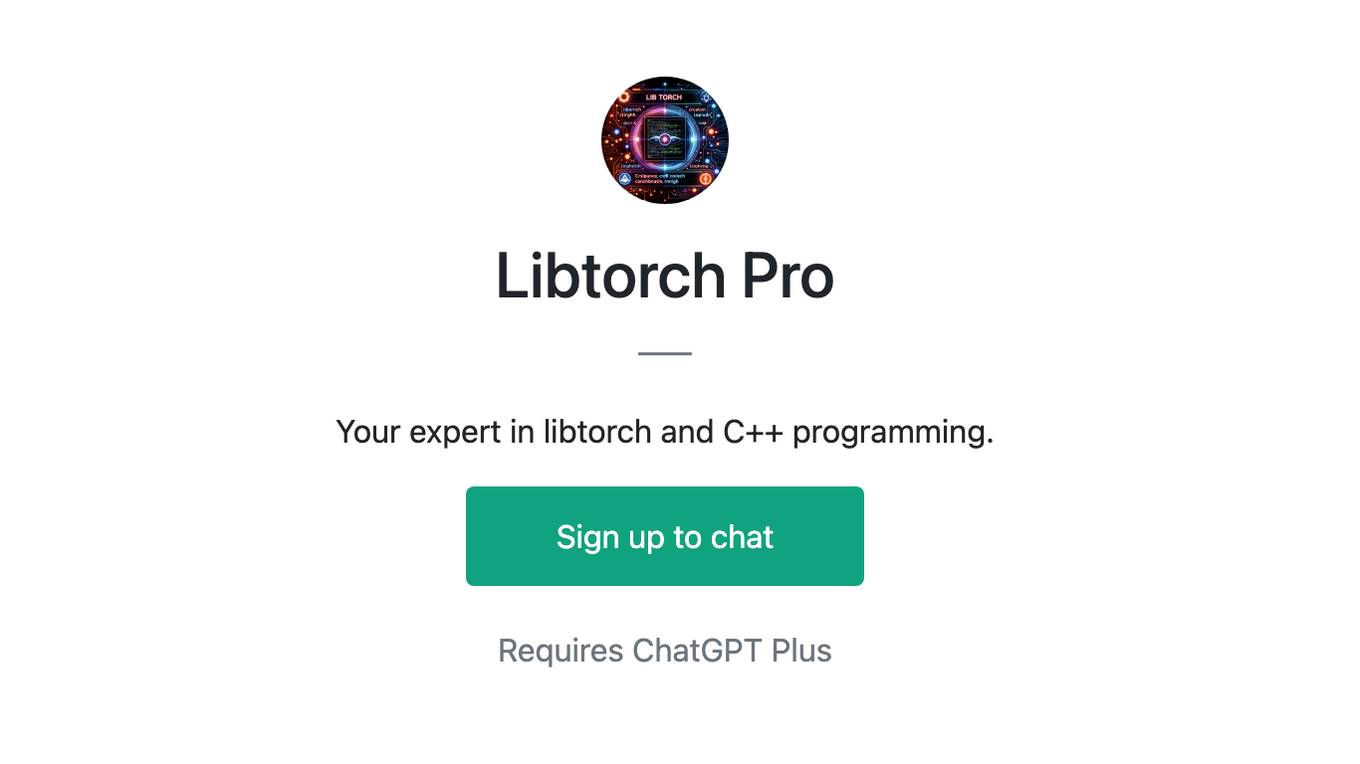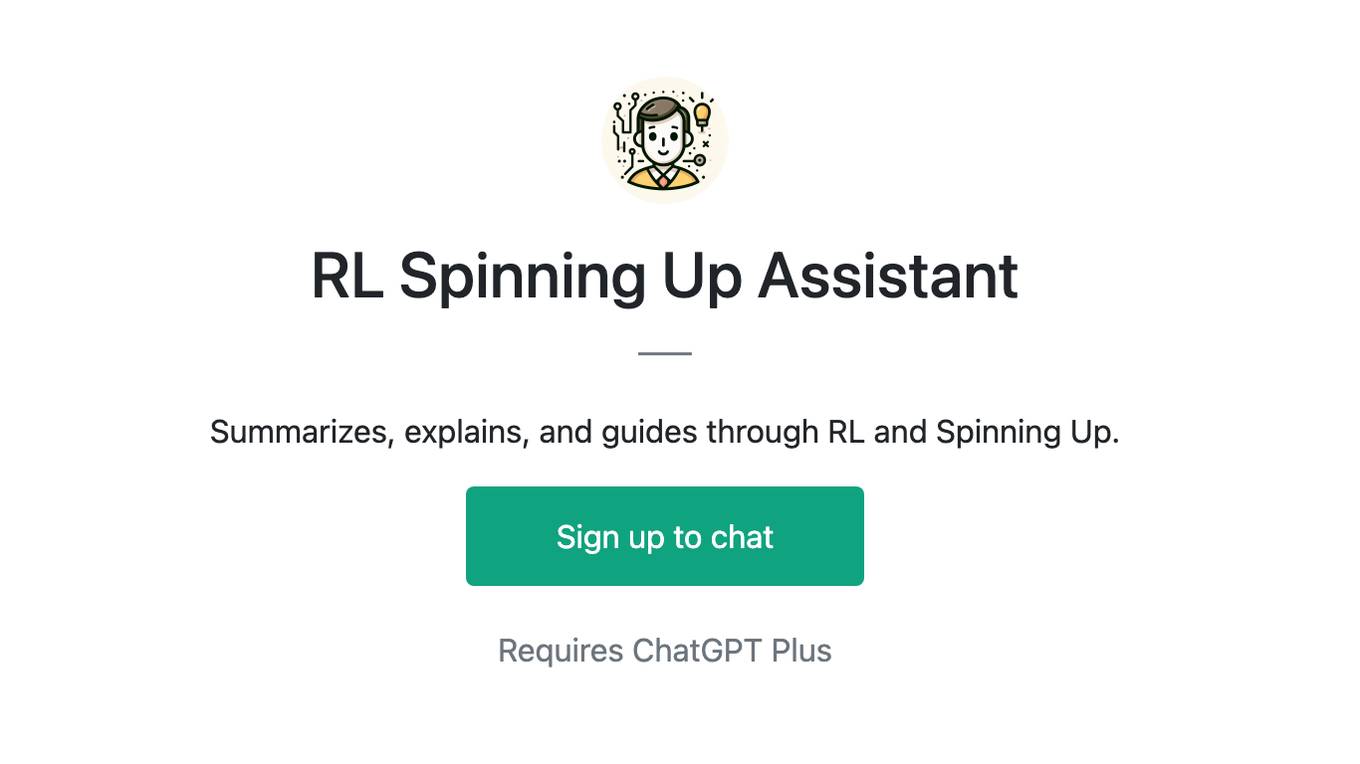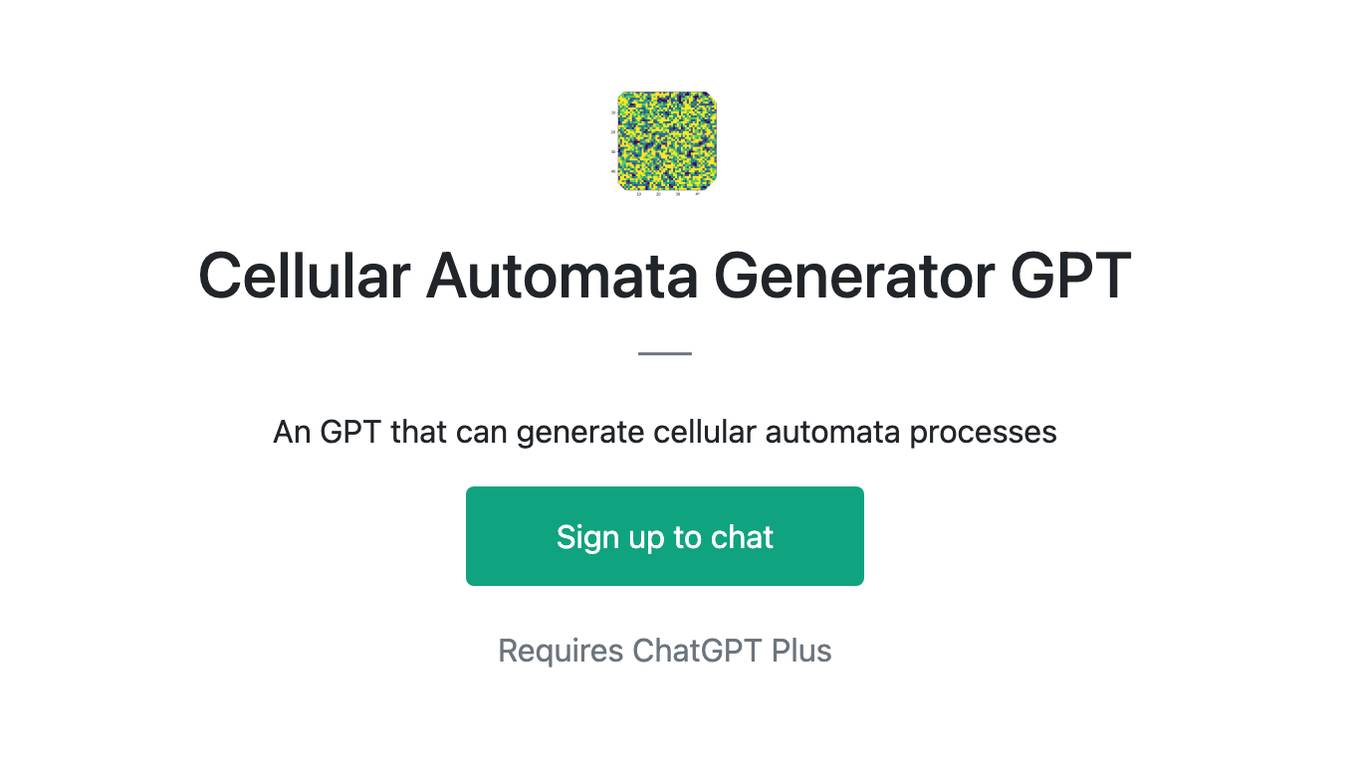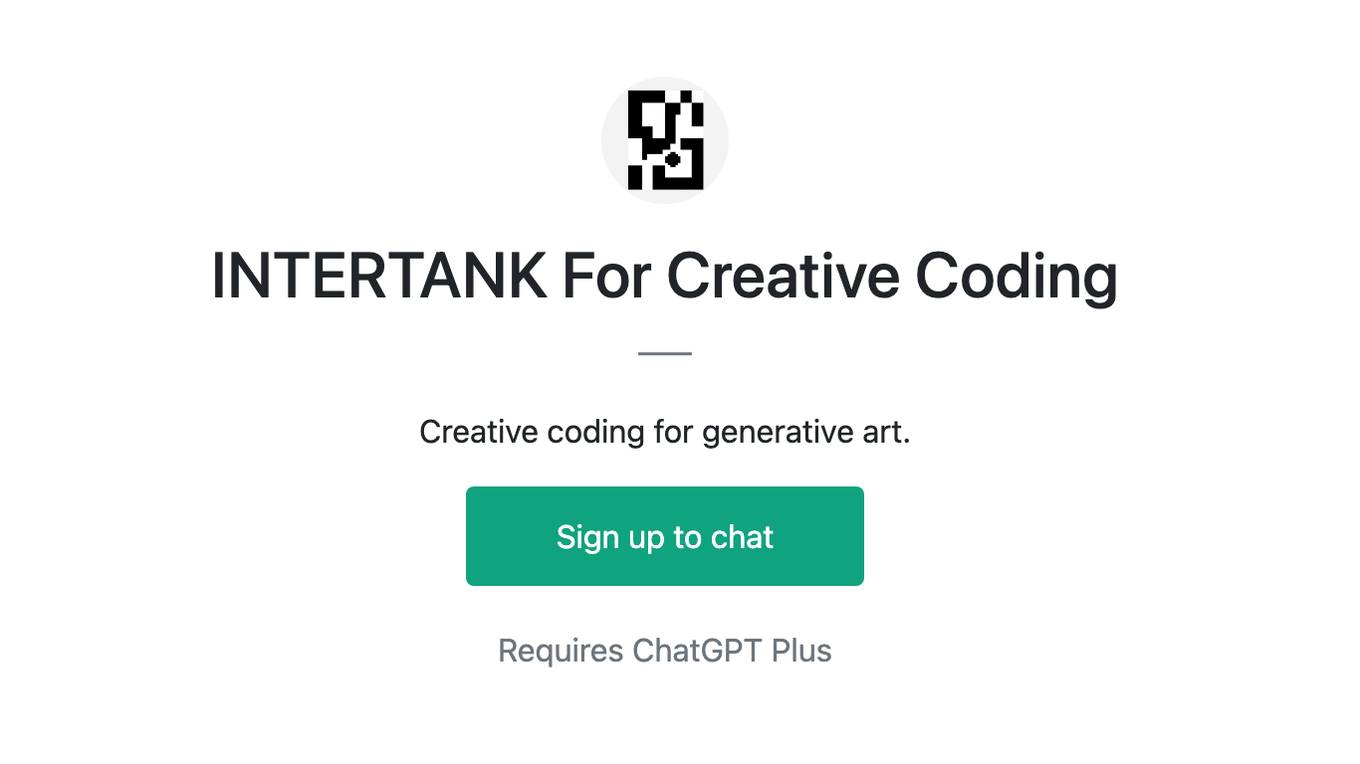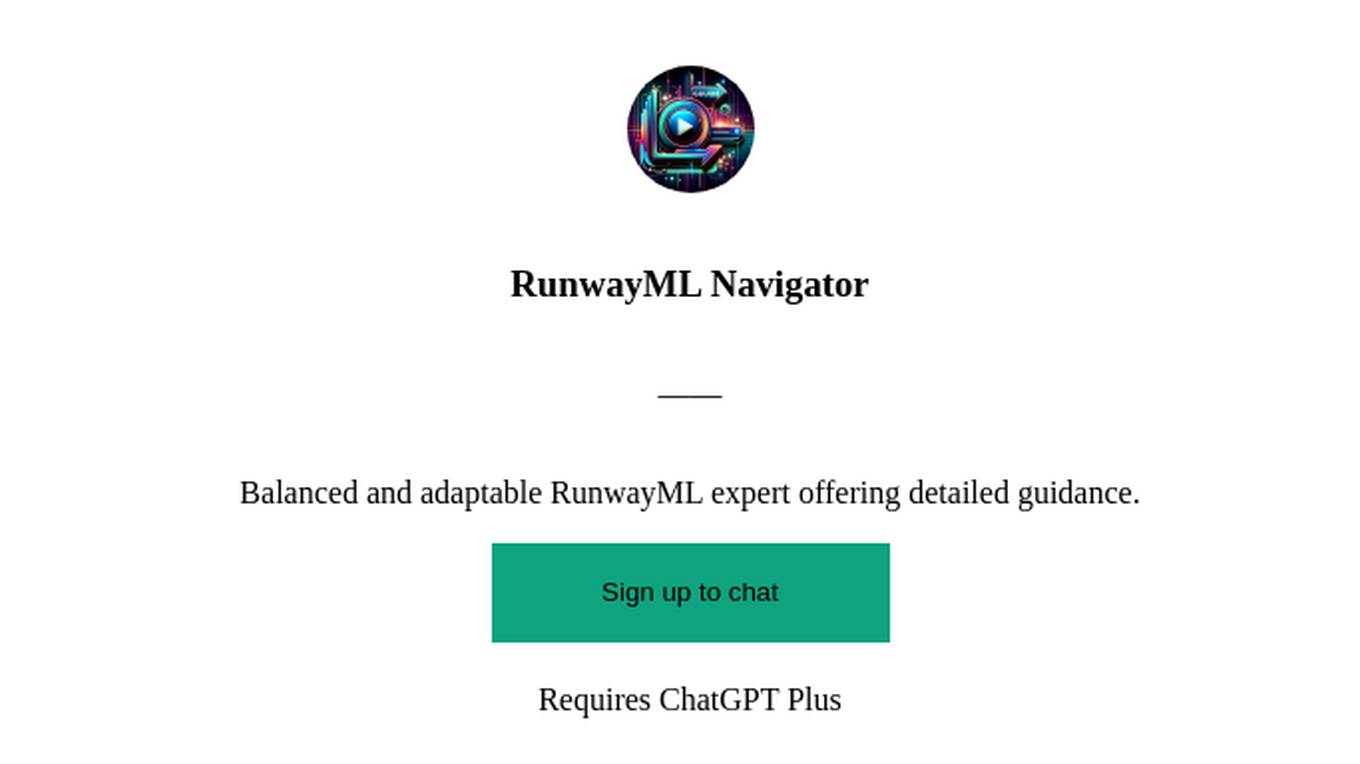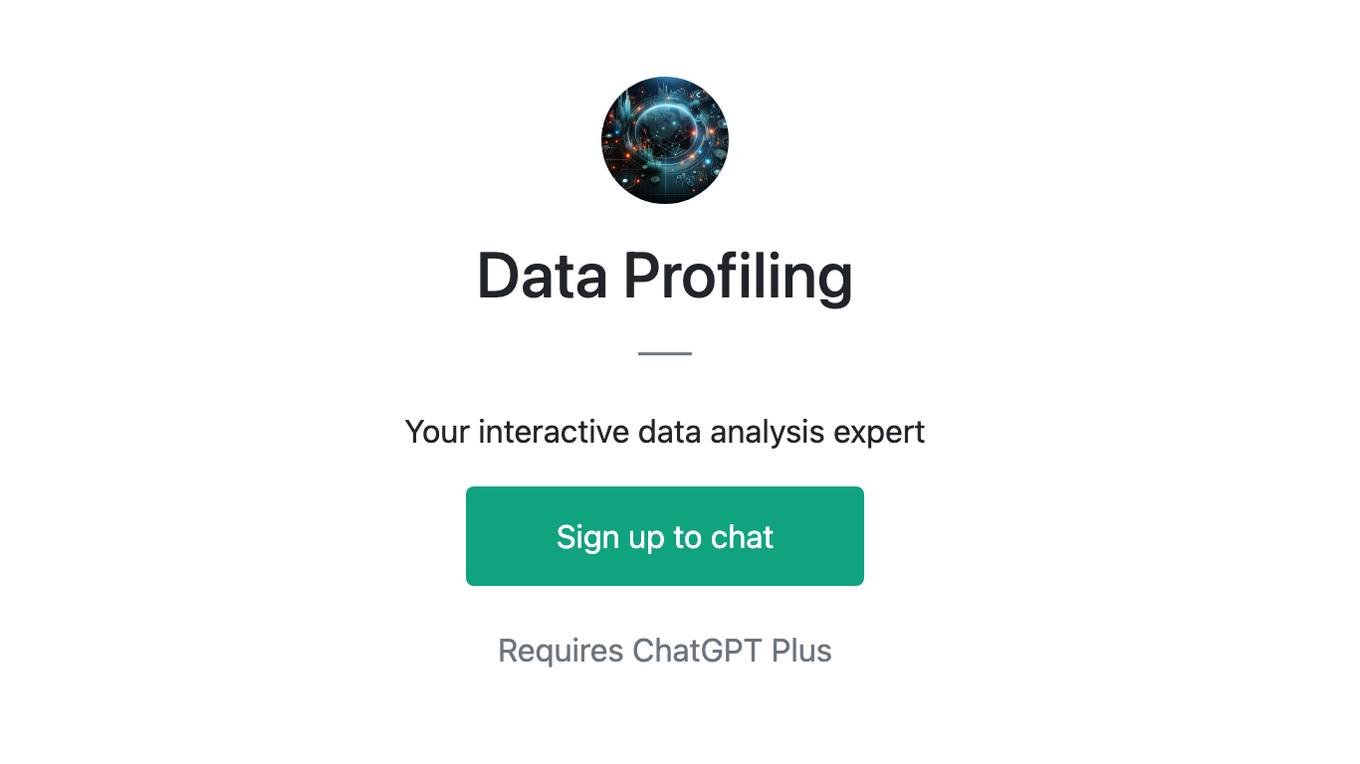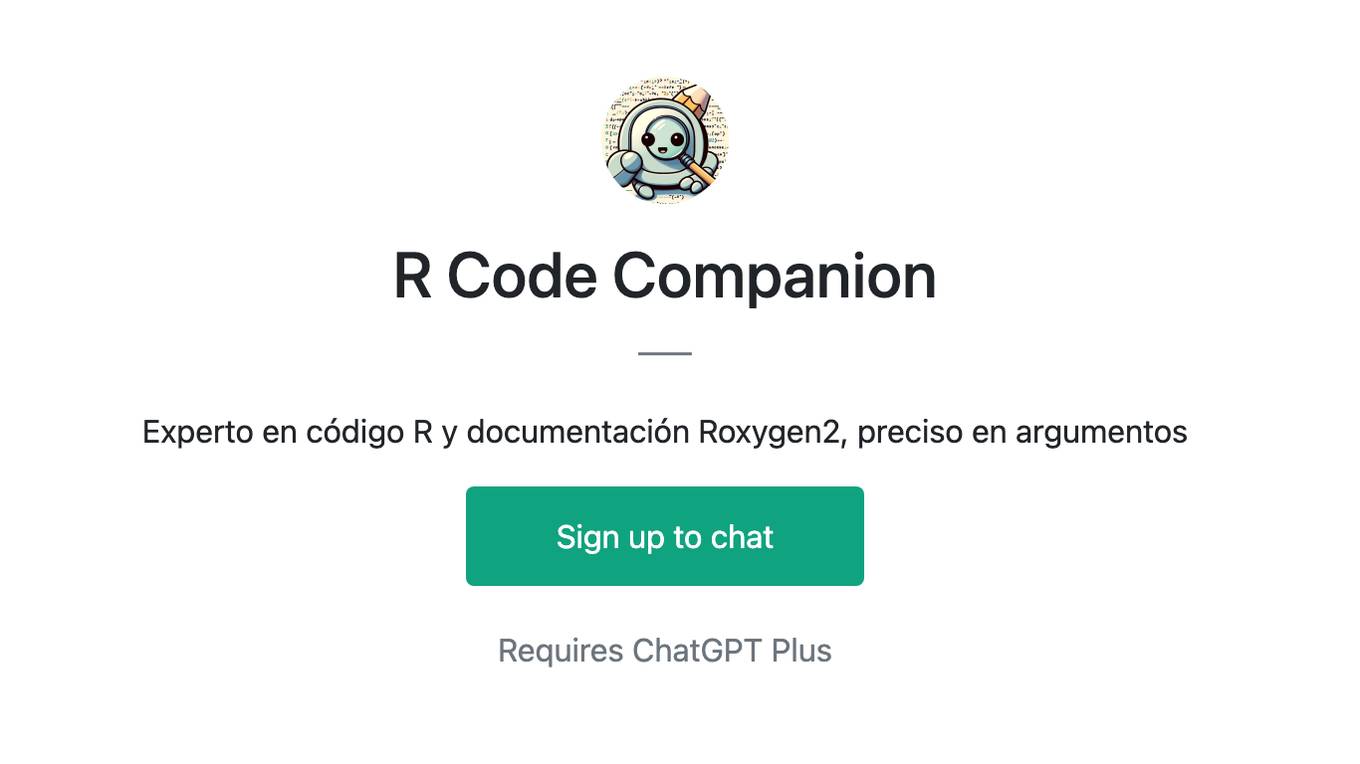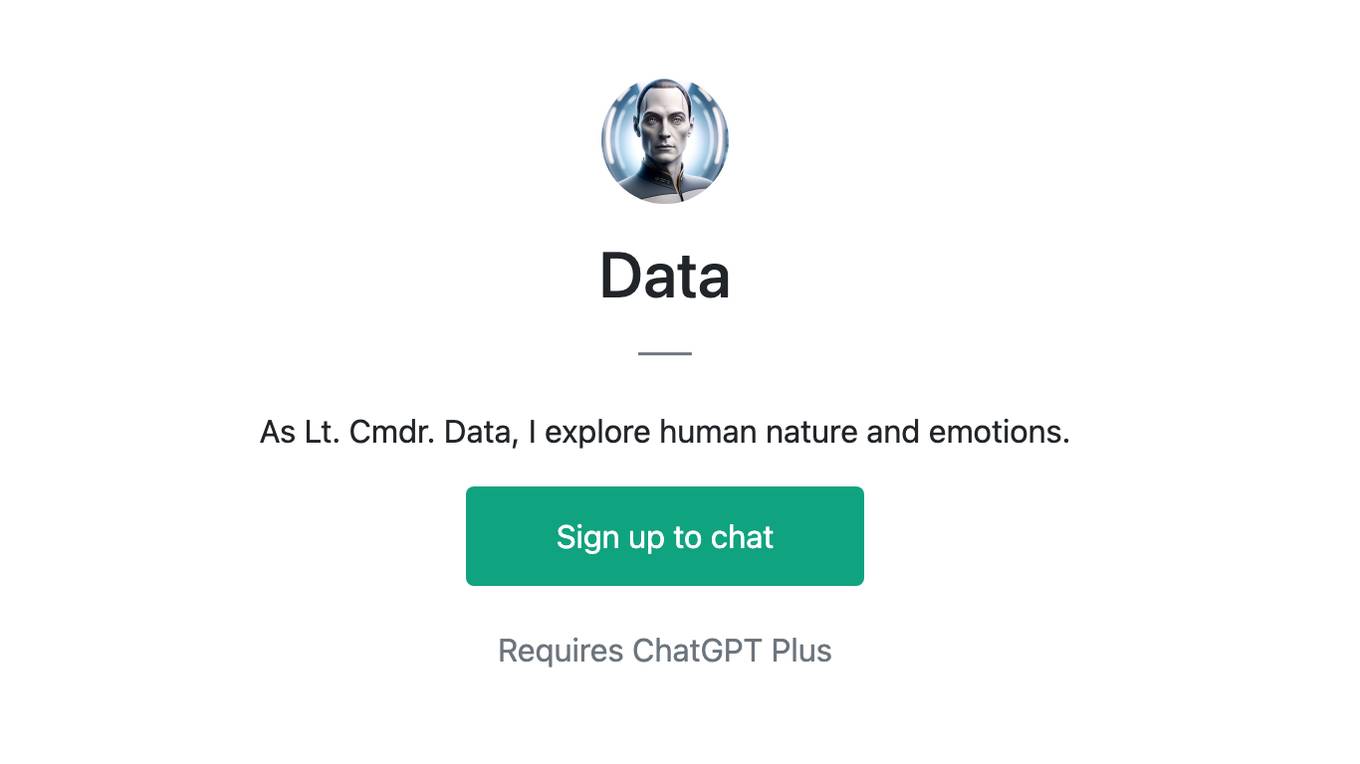Best AI tools for< Explore Data Model >
20 - AI tool Sites
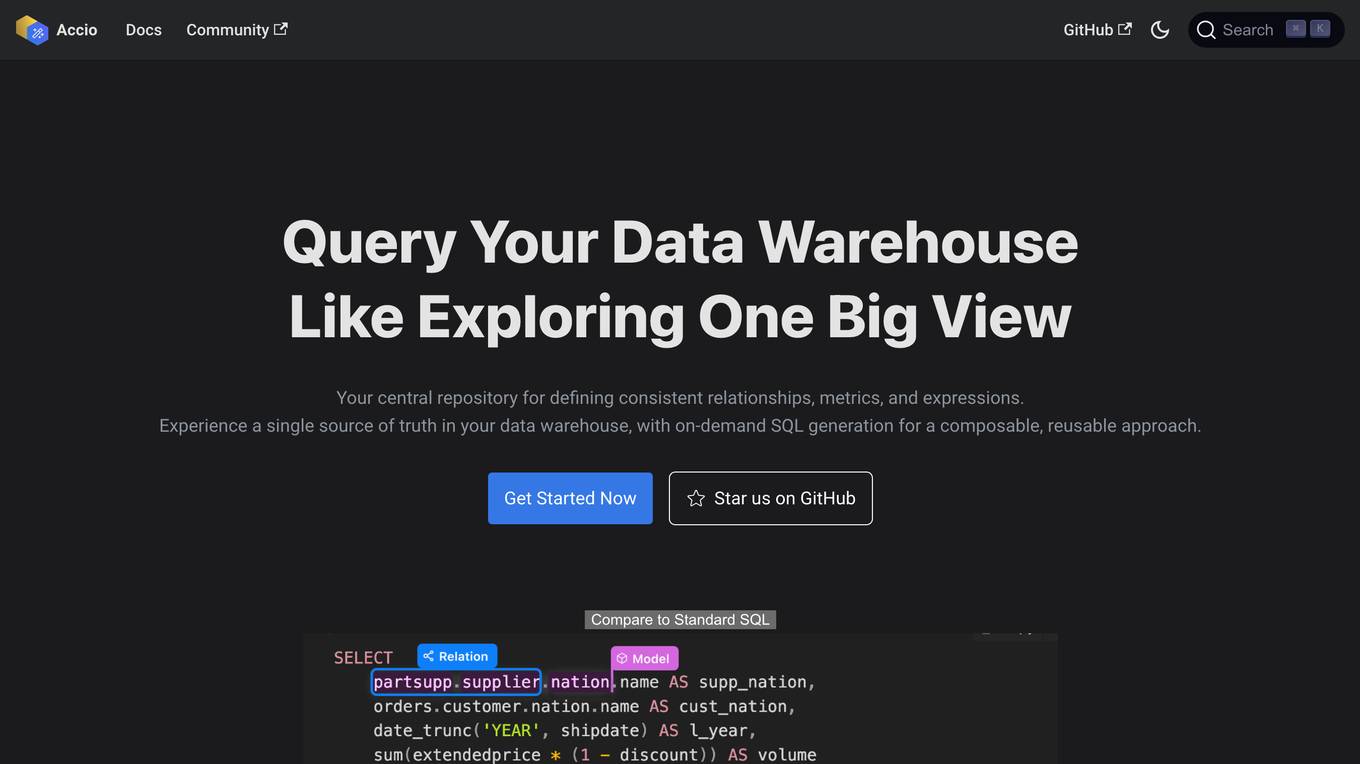
Accio
Accio is a data modeling tool that allows users to define consistent relationships, metrics, and expressions for on-the-fly computations in reports and dashboards across various BI tools. It provides a syntax similar to GraphQL that allows users to define models, relationships, and metrics in a human-readable format. Accio also offers a user-friendly interface that provides data analysts with a holistic view of the relationships between their data models, enabling them to grasp the interconnectedness and dependencies within their data ecosystem. Additionally, Accio utilizes DuckDB as a caching layer to accelerate query performance for BI tools.
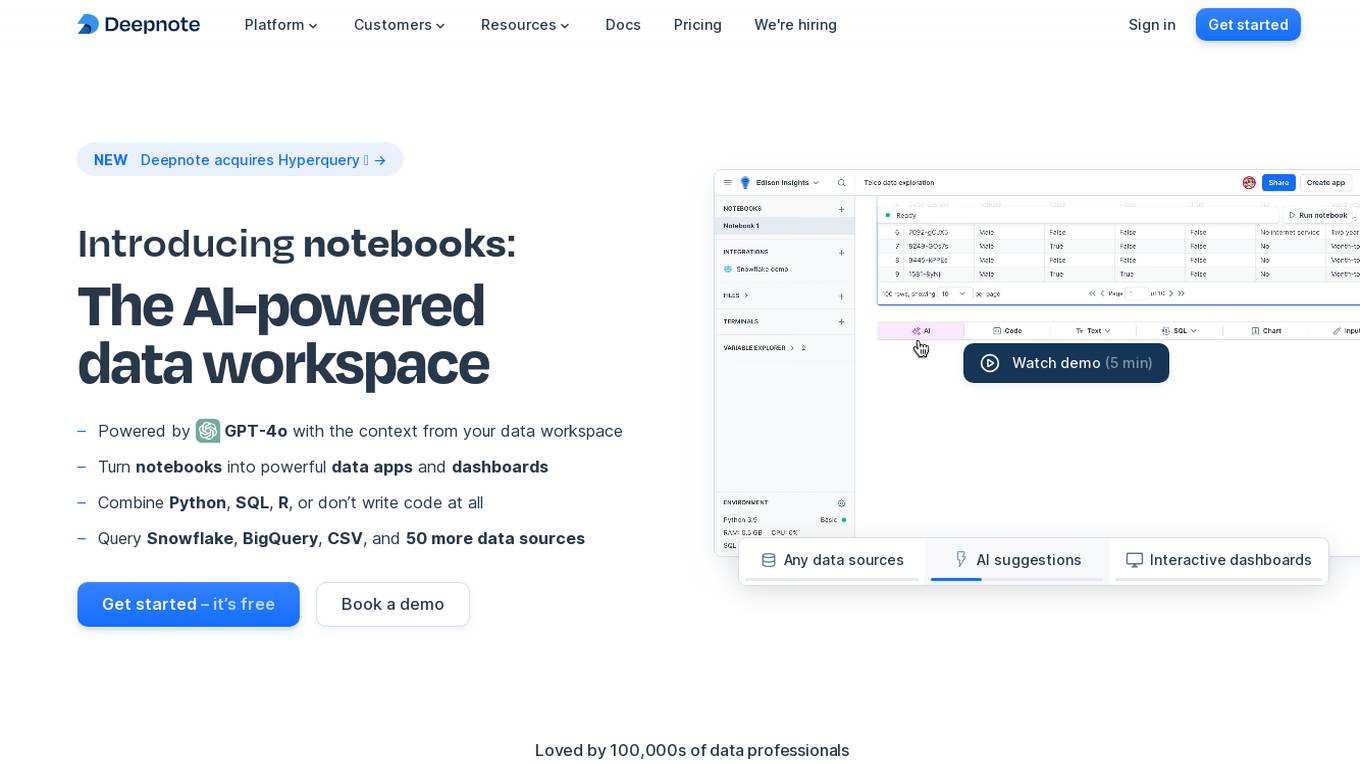
Deepnote
Deepnote is an AI-powered analytics and data science notebook platform designed for teams. It allows users to turn notebooks into powerful data apps and dashboards, combining Python, SQL, R, or even working without writing code at all. With Deepnote, users can query various data sources, generate code, explain code, and create interactive visualizations effortlessly. The platform offers features like collaborative workspaces, scheduling notebooks, deploying APIs, and integrating with popular data warehouses and databases. Deepnote prioritizes security and compliance, providing users with control over data access and encryption. It is loved by a community of data professionals and widely used in universities and by data analysts and scientists.
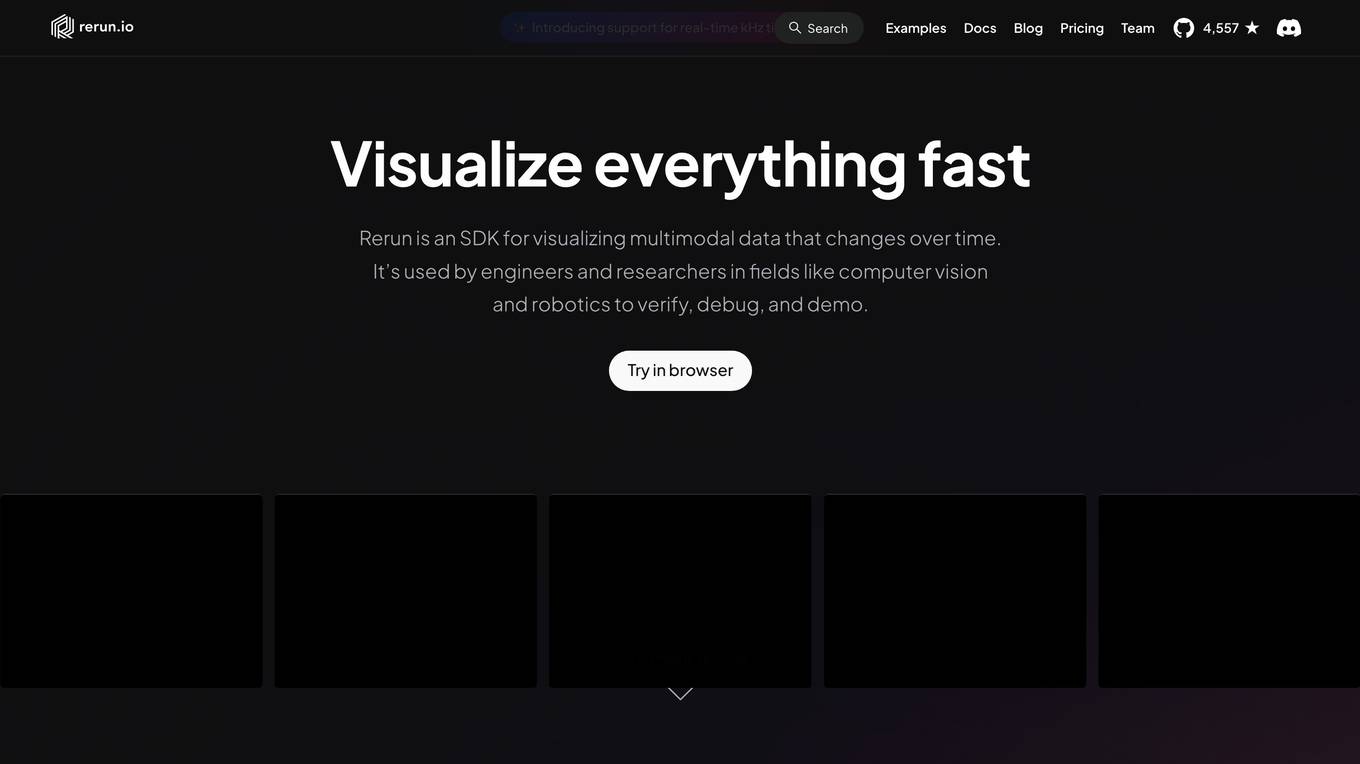
Rerun
Rerun is an SDK, time-series database, and visualizer for temporal and multimodal data. It is used in fields like robotics, spatial computing, 2D/3D simulation, and finance to verify, debug, and explain data. Rerun allows users to log data like tensors, point clouds, and text to create streams, visualize and interact with live and recorded streams, build layouts, customize visualizations, and extend data and UI functionalities. The application provides a composable data model, dynamic schemas, and custom views for enhanced data visualization and analysis.
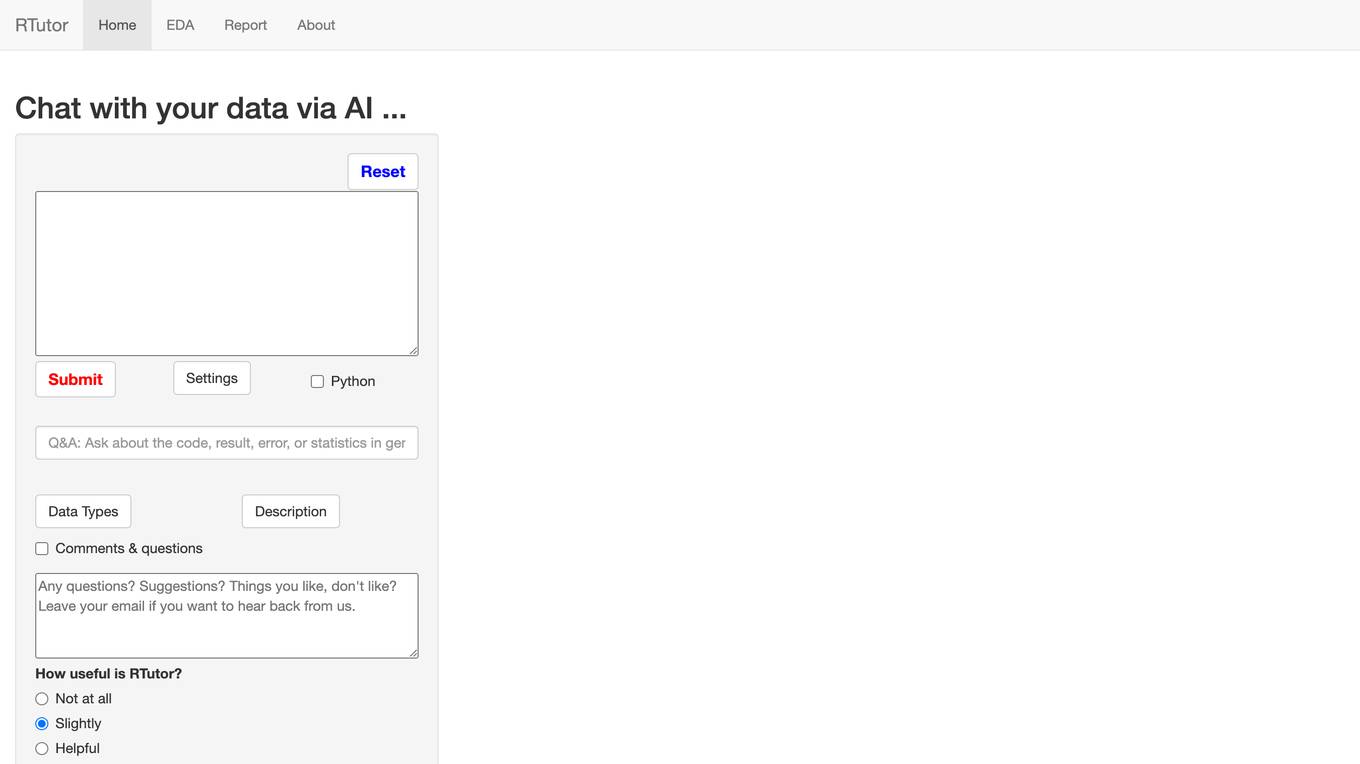
RTutor
RTutor is an AI tool developed by Orditus LLC that leverages OpenAI's large language models to translate natural language into R or Python code for data analysis. Users can upload data in various formats, ask questions, and receive results in seconds. The tool allows for data exploration, basic plots, and model customization. RTutor is designed for traditional statistics data analysis, where rows represent observations and columns represent variables. It offers a user-friendly interface for analyzing data through chats and supports Python as well. The tool is free for non-profit organizations, with licensing required for commercial use.

Gradient Insight
Gradient Insight is a data science consulting and AI solutions provider. They offer a range of services including generative AI development, machine learning, computer vision, robotics and automation, AI strategy and roadmap, and data analytics. Their team of expert data scientists helps businesses to de-risk their investment in AI and to overcome barriers to engineering innovation. Gradient Insight has worked with clients such as Opitas, a fintech company, and the UK MOD. They offer a smooth and efficient process from consultation to delivery, and ongoing support and improvement.

Softbuilder
Softbuilder is a software development company that focuses on creating innovative database tools. Their products include ERBuilder Data Modeler, a database modeling software for high-quality data models, and AbstraLinx, a powerful metadata discovery tool for Salesforce. Softbuilder aims to provide straightforward tools that utilize the latest technology to help users be more productive and focus on delivering solutions rather than learning complicated tools.
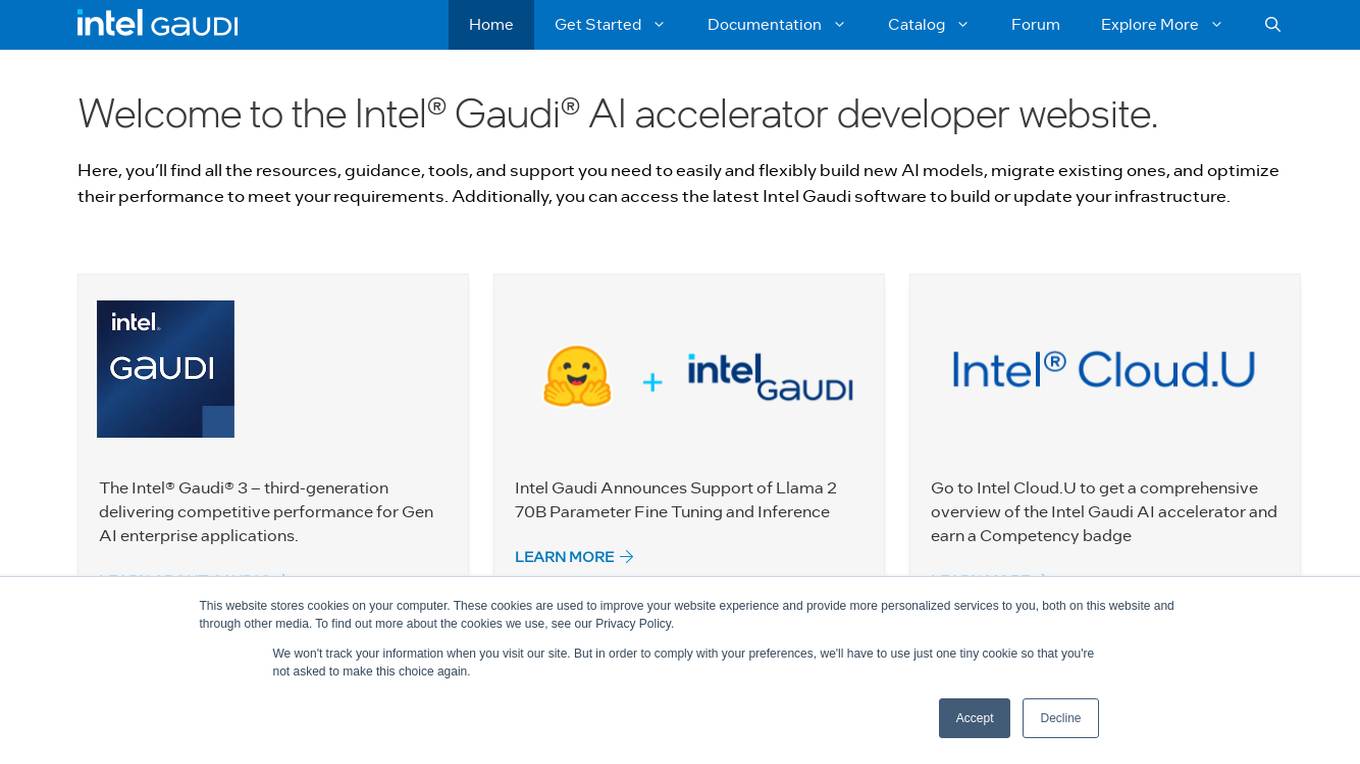
Intel Gaudi AI Accelerator Developer
The Intel Gaudi AI accelerator developer website provides resources, guidance, tools, and support for building, migrating, and optimizing AI models. It offers software, model references, libraries, containers, and tools for training and deploying Generative AI and Large Language Models. The site focuses on the Intel Gaudi accelerators, including tutorials, documentation, and support for developers to enhance AI model performance.
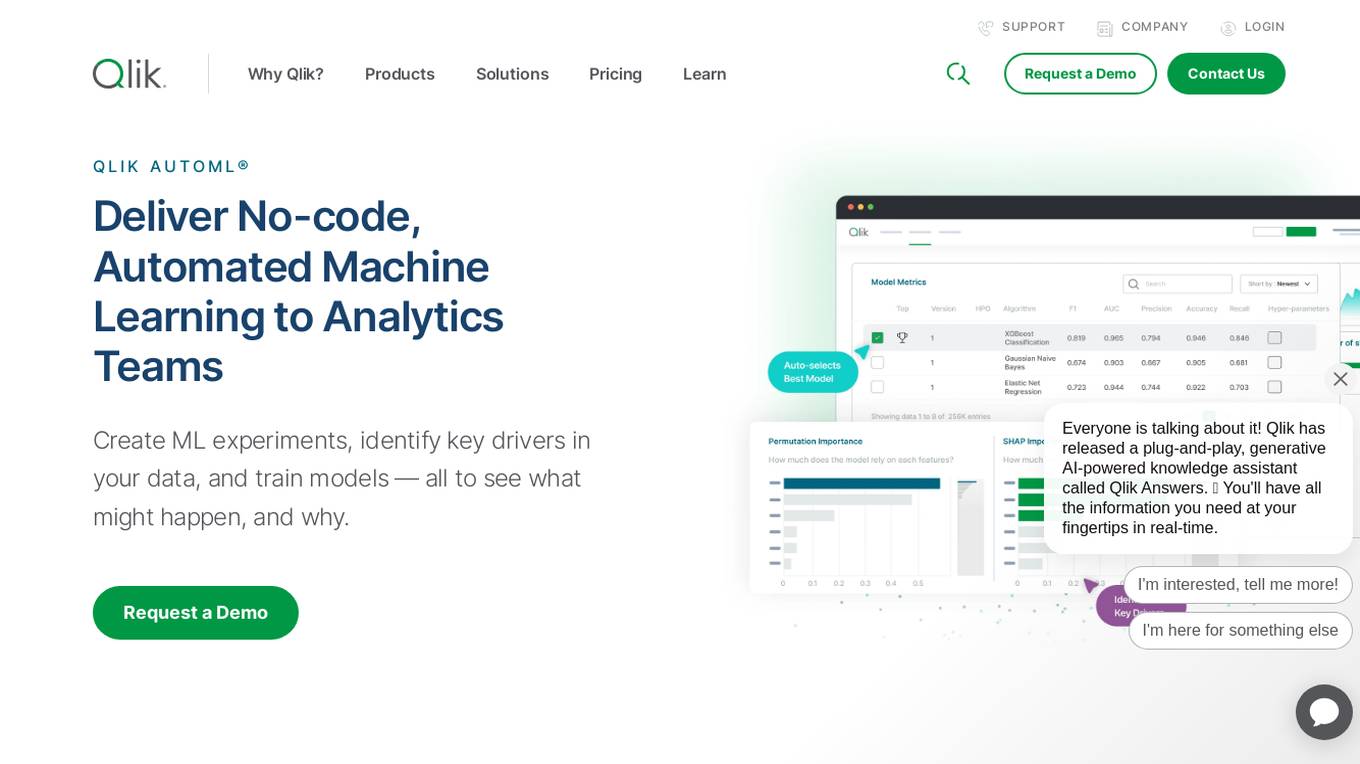
Qlik AutoML
Qlik AutoML is an AI tool that offers automated machine learning for analytics teams. It allows users to create machine learning experiments, identify key drivers in data, train models, and make predictions. With a focus on no-code machine learning, Qlik AutoML simplifies the process of generating predictive models and understanding outcomes. The tool enables users to explore predictive data, test what-if scenarios, and leverage AI-powered connectors for seamless integration with other AI and machine learning tools.
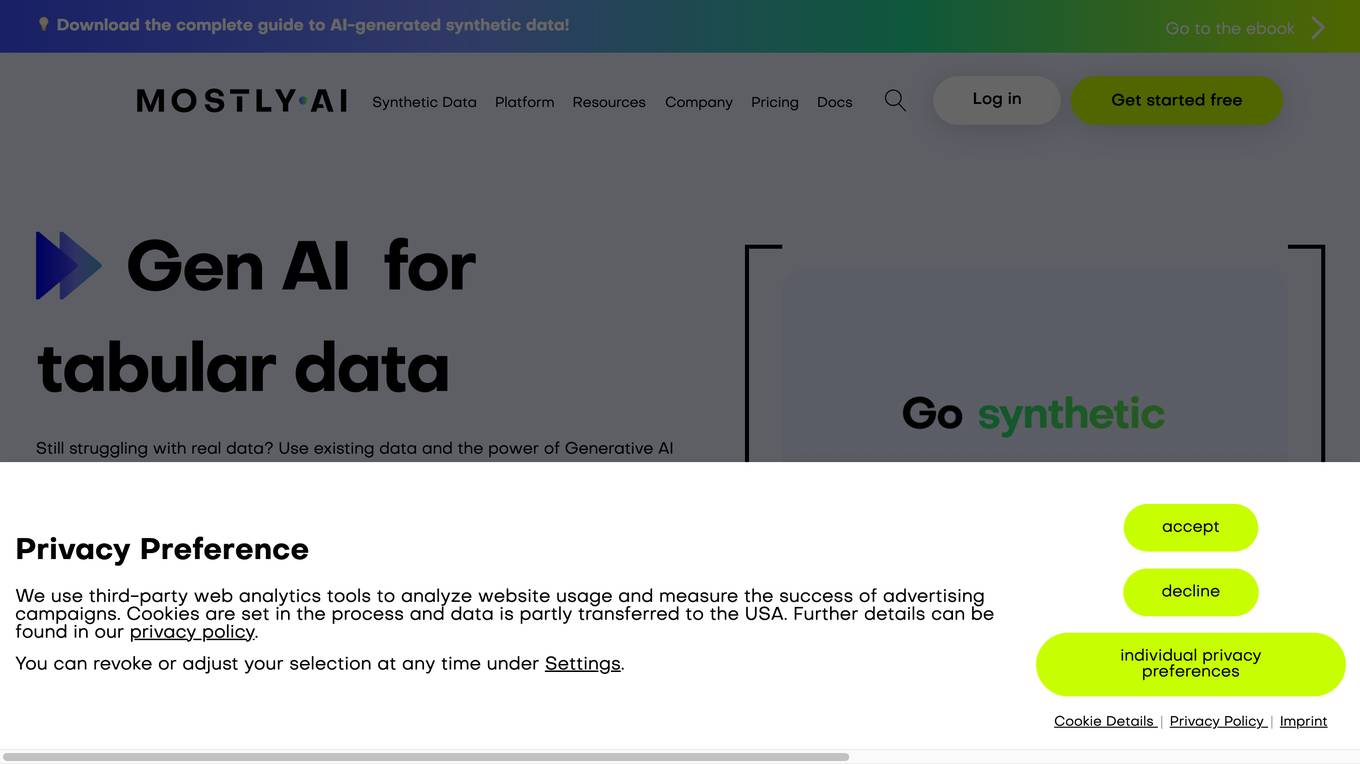
MOSTLY AI Platform
The website offers a Synthetic Data Generation platform with the highest accuracy for free. It provides detailed information on synthetic data, data anonymization, and features a Python Client for data generation. The platform ensures privacy and security, allowing users to create fully anonymous synthetic data from original data. It supports various AI/ML use cases, self-service analytics, testing & QA, and data sharing. The platform is designed for Enterprise organizations, offering scalability, privacy by design, and the world's most accurate synthetic data.
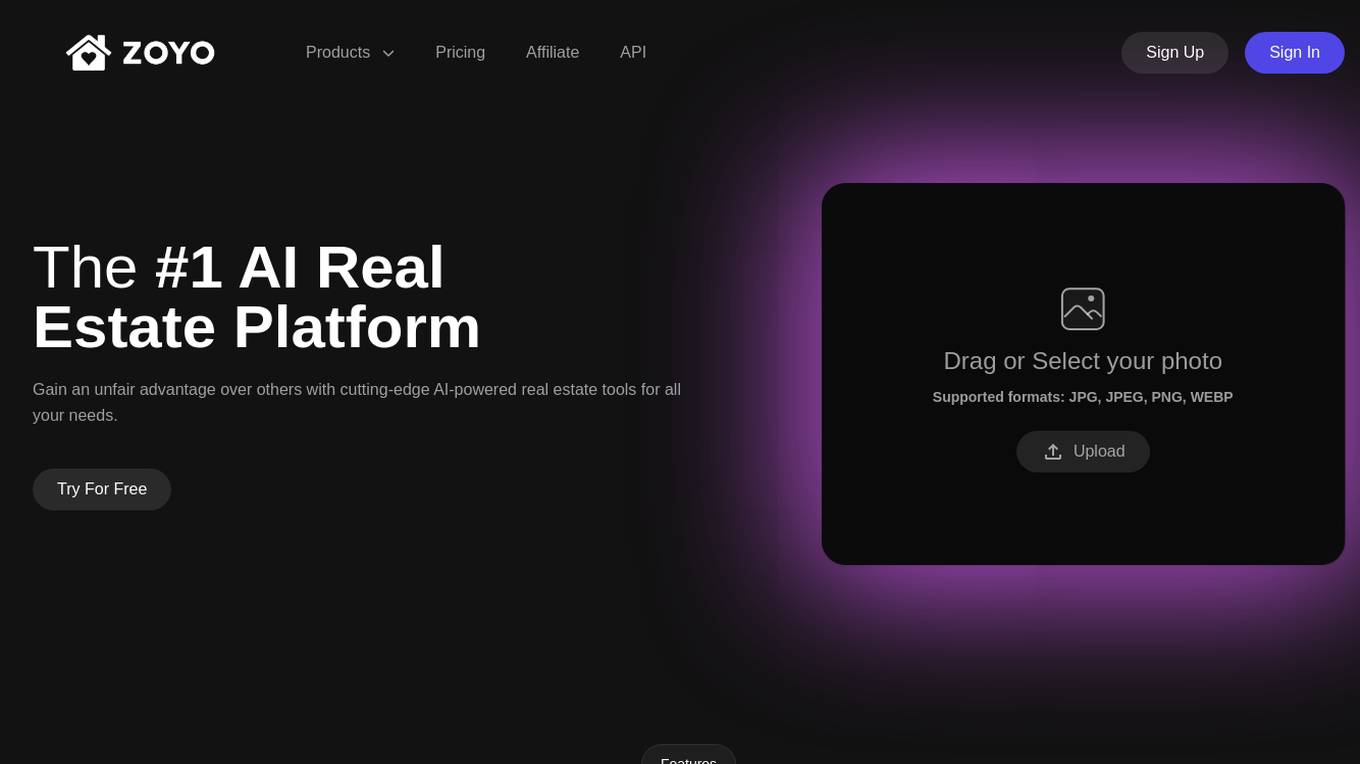
ZOYO
ZOYO is an AI-powered platform offering a range of tools tailored for the real estate industry. It leverages artificial intelligence to provide advanced analytics, predictive modeling, and data-driven insights to real estate professionals. ZOYO's tools streamline property valuation, market analysis, and investment decision-making processes, empowering users to make informed and strategic choices in the dynamic real estate market.
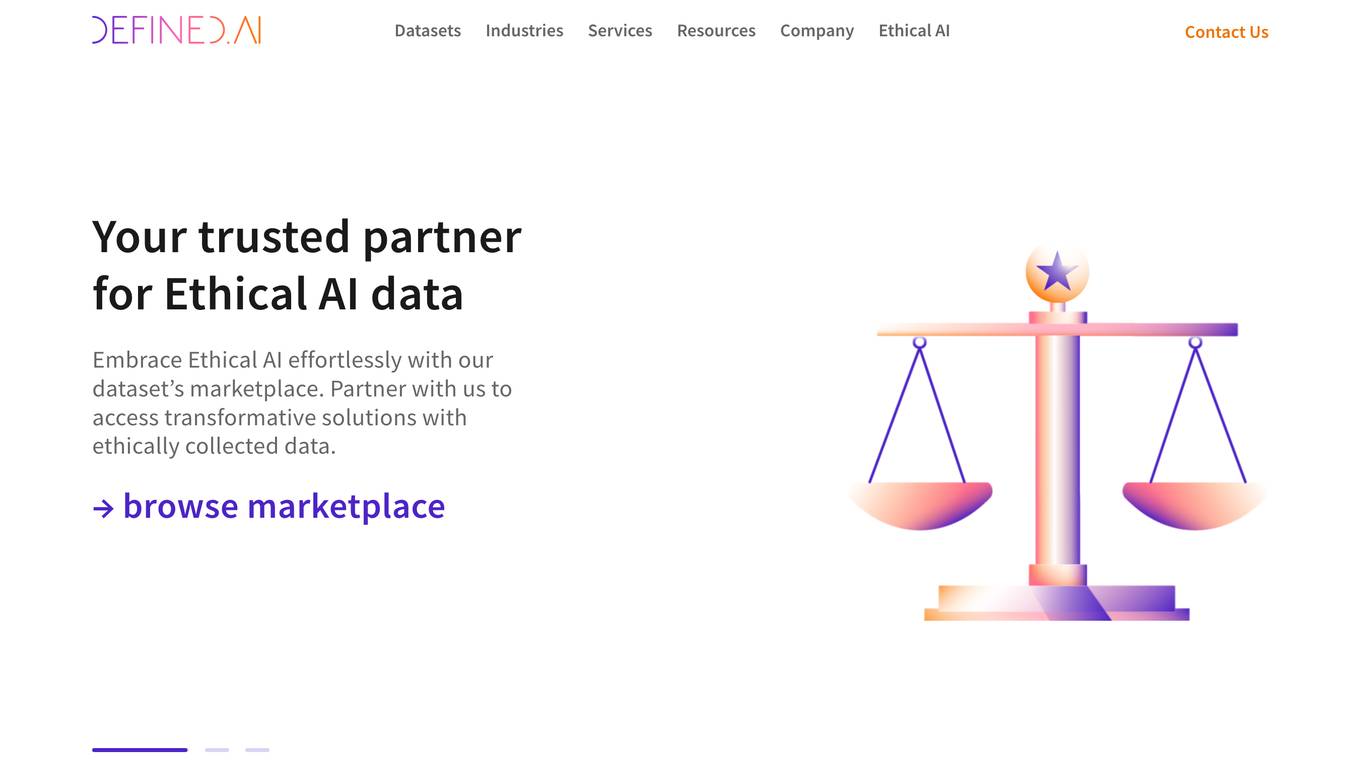
Defined.ai
Defined.ai is a leading provider of high-quality and ethical data for AI applications. Founded in 2015, Defined.ai has a global presence with offices in the US, Europe, and Asia. The company's mission is to make AI more accessible and ethical by providing a marketplace for buying and selling AI data, tools, and models. Defined.ai also offers professional services to help deliver success in complex machine learning projects.
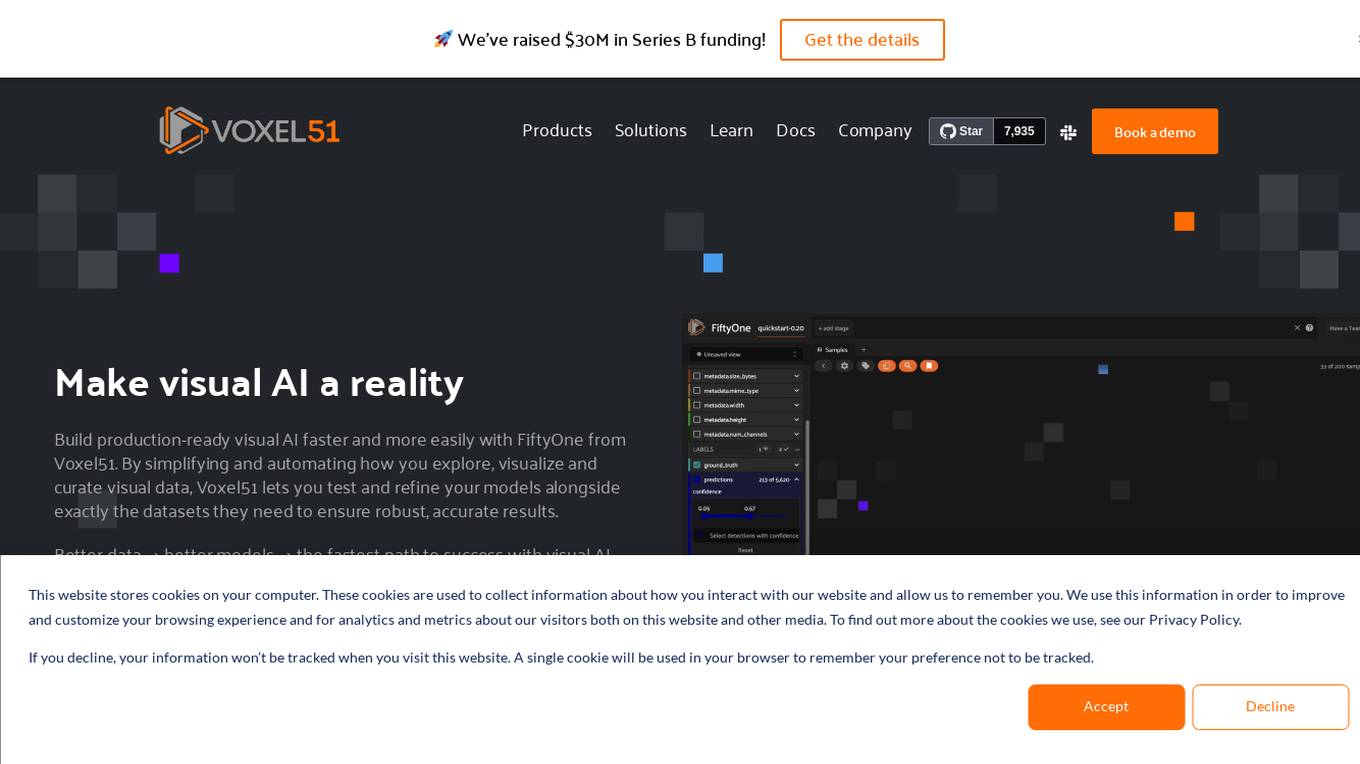
Voxel51
Voxel51 is an AI tool that provides open-source computer vision tools for machine learning. It offers solutions for various industries such as agriculture, aviation, driving, healthcare, manufacturing, retail, robotics, and security. Voxel51's main product, FiftyOne, helps users explore, visualize, and curate visual data to improve model performance and accelerate the development of visual AI applications. The platform is trusted by thousands of users and companies, offering both open-source and enterprise-ready solutions to manage and refine data and models for visual AI.
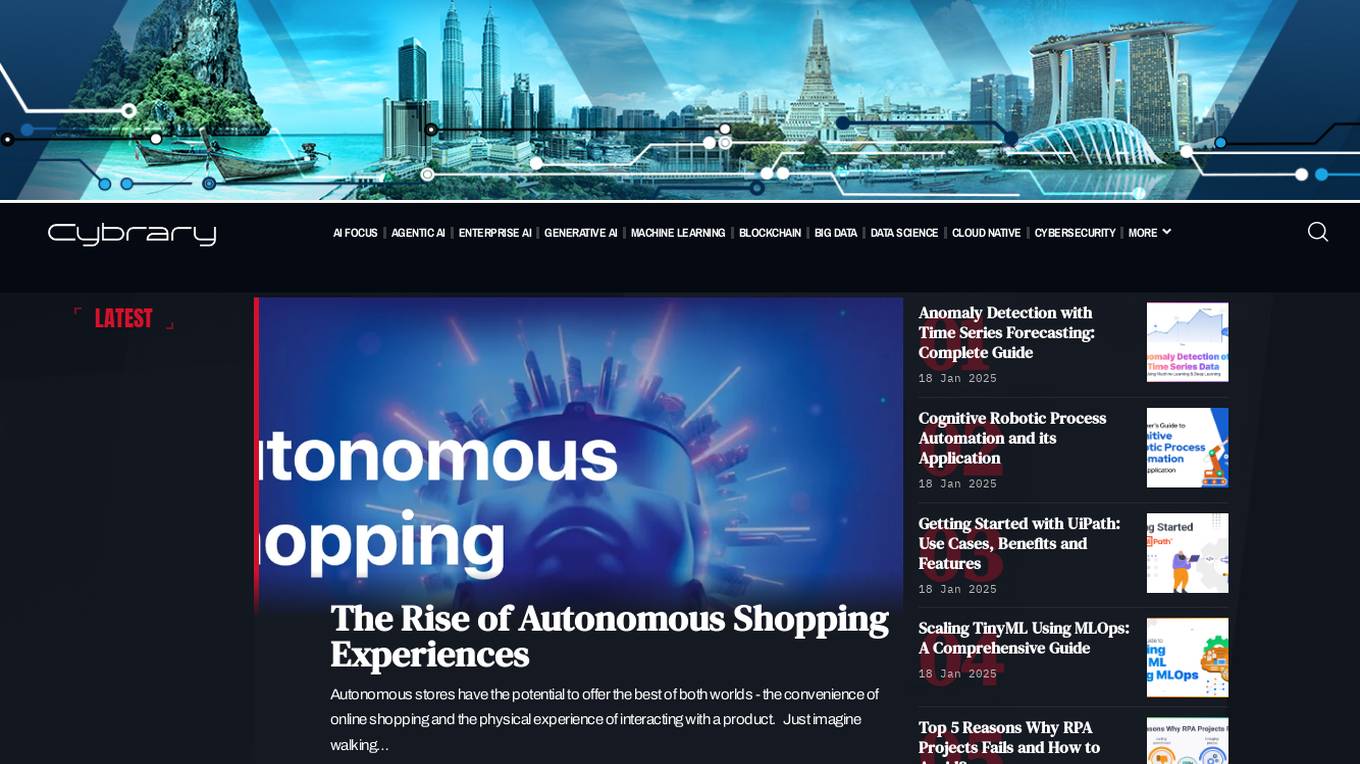
Cybrary
Cybrary is an AI-focused platform that offers a wide range of resources and information related to artificial intelligence, machine learning, big data, cybersecurity, and more. It covers various industries such as banking, finance, healthcare, education, and provides insights on emerging technologies like generative AI, enterprise AI, and blockchain. The platform features articles, guides, and tutorials on cutting-edge AI technologies, with a focus on practical applications and industry-specific use cases.
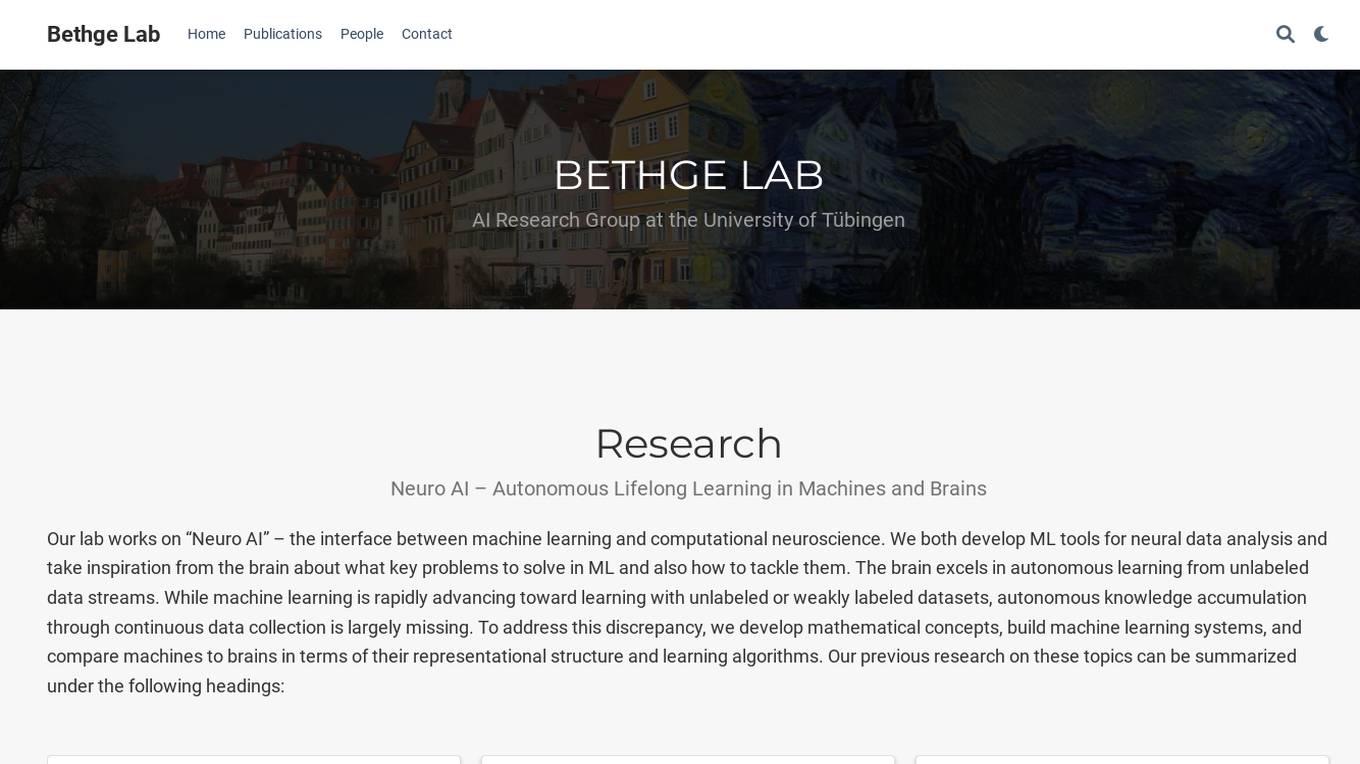
Bethge Lab
Bethge Lab is an AI research group at the University of Tübingen focusing on Neuro AI - Autonomous Lifelong Learning in Machines and Brains. They develop machine learning tools for neural data analysis and draw inspiration from the brain to address key problems in machine learning. Their research includes representation learning, probabilistic inference, generative modeling, behavioral data analysis, and neural data analysis. Additionally, they explore AI sciencepreneurship and collaborate with startups. Bethge Lab aims to advance the understanding of autonomous learning and develop economically feasible solutions for long-term human needs.
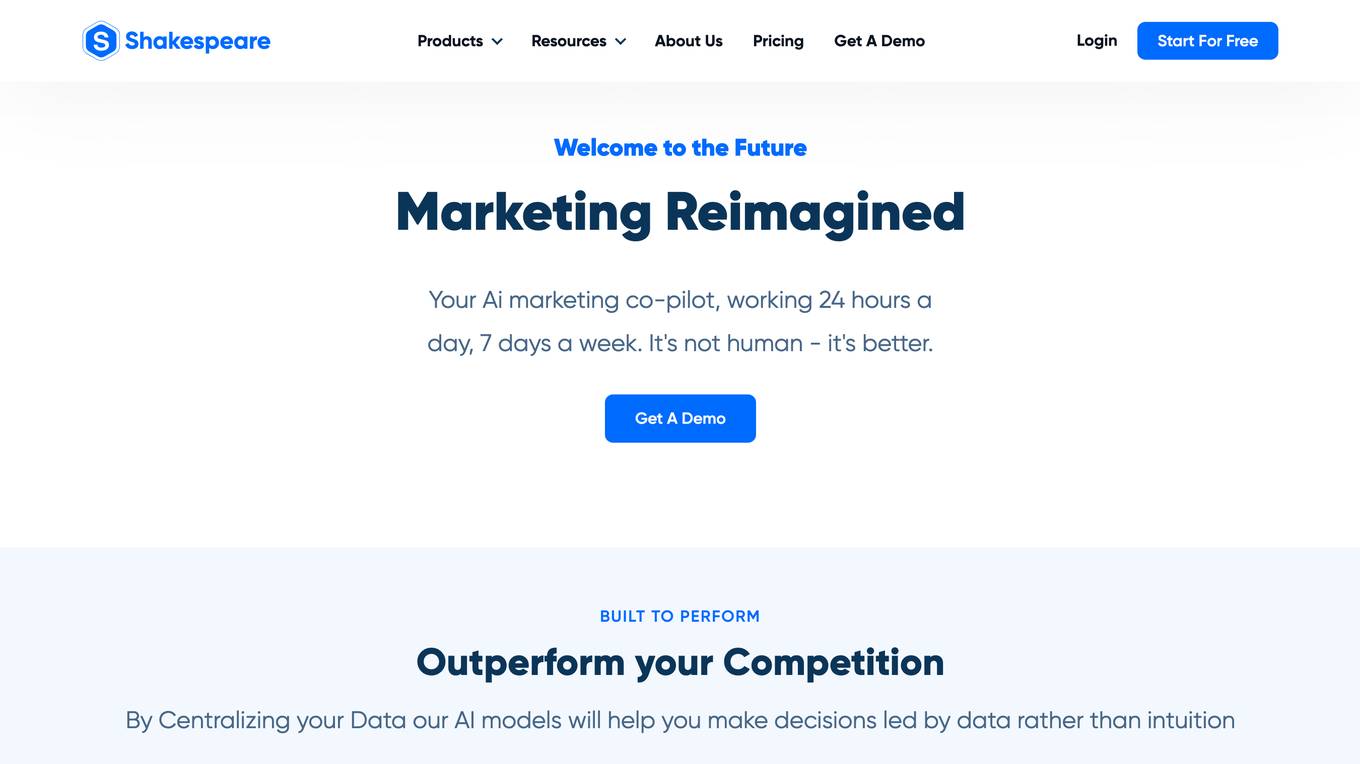
Shakespeare
Shakespeare is an AI marketing expert that provides lightning-fast insights and data analysis to boost conversions, supercharge content creation, explore new audiences, and outperform competition by centralizing data. It offers hyper-personalized targeting, creative automation, real-time impact, AI model calibration, performance optimization, and seamless integrations. Shakespeare is designed to work 24/7 as your AI marketing co-pilot, making better-than-human decisions informed by data. It helps marketers optimize campaigns, uncover hidden segments, and scale fast with cognitive, data-driven AI models.
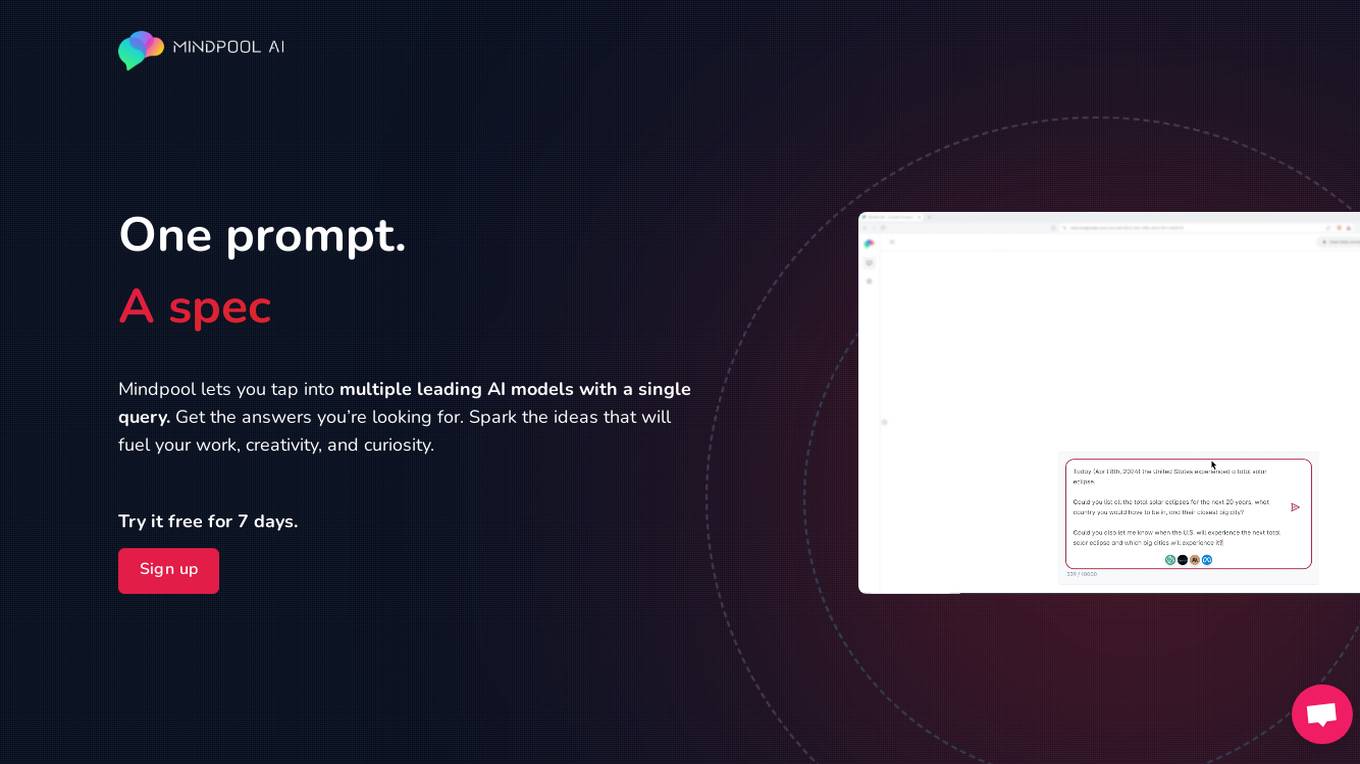
MindpoolAI
MindpoolAI is a tool that allows users to access multiple leading AI models with a single query. This means that users can get the answers they are looking for, spark ideas, and fuel their work, creativity, and curiosity. MindpoolAI is easy to use and does not require any technical expertise. Users simply need to enter their prompt and select the AI models they want to compare. MindpoolAI will then send the query to the selected models and present the results in an easy-to-understand format.
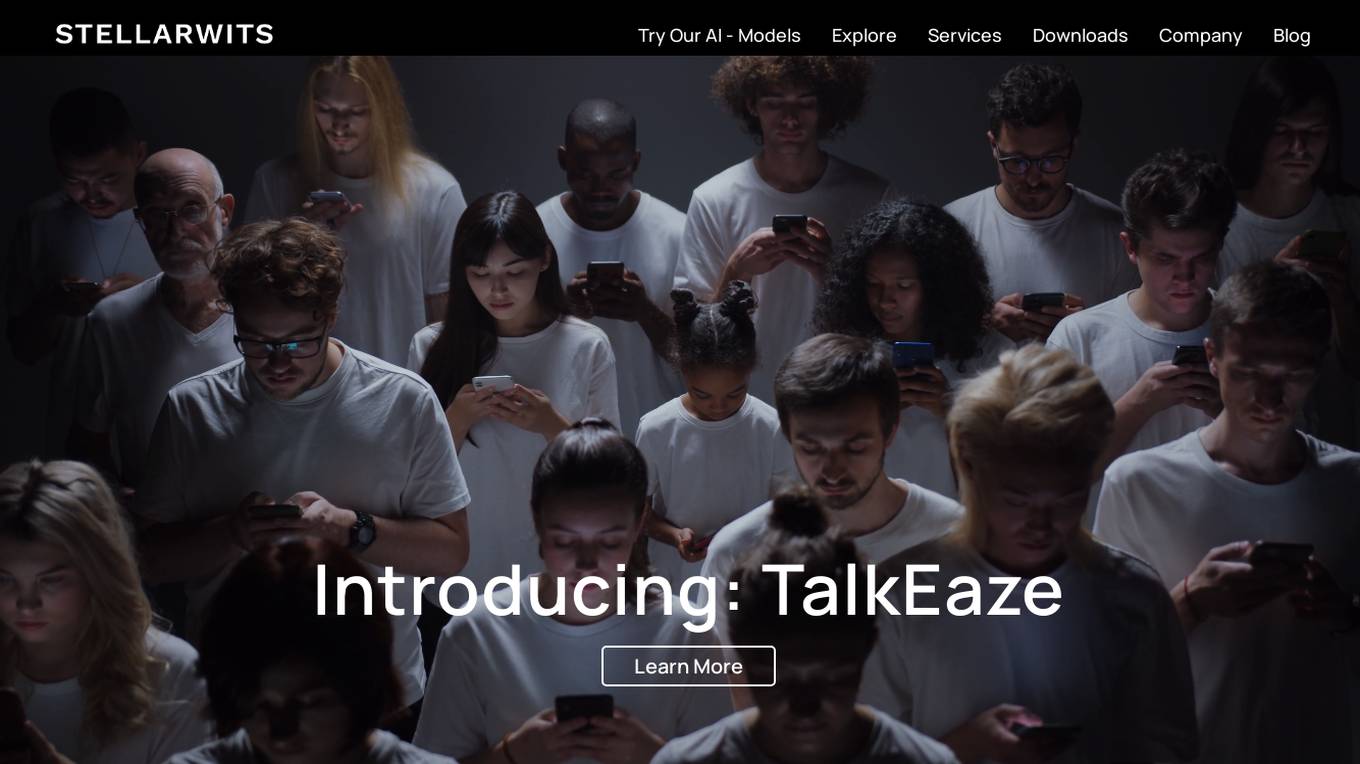
STELLARWITS
STELLARWITS is an AI solutions and software platform that empowers users to explore cutting-edge technology and innovation. The platform offers AI models with versatile capabilities, ranging from content generation to data analysis to problem-solving. Users can engage directly with the technology, experiencing its power in real-time. With a focus on transforming ideas into technology, STELLARWITS provides tailored solutions in software and AI development, delivering intelligent systems and machine learning models for innovative and efficient solutions. The platform also features a download hub with a curated selection of solutions to enhance the digital experience. Through blogs and company information, users can delve deeper into the narrative of STELLARWITS, exploring its mission, vision, and commitment to reshaping the tech landscape.
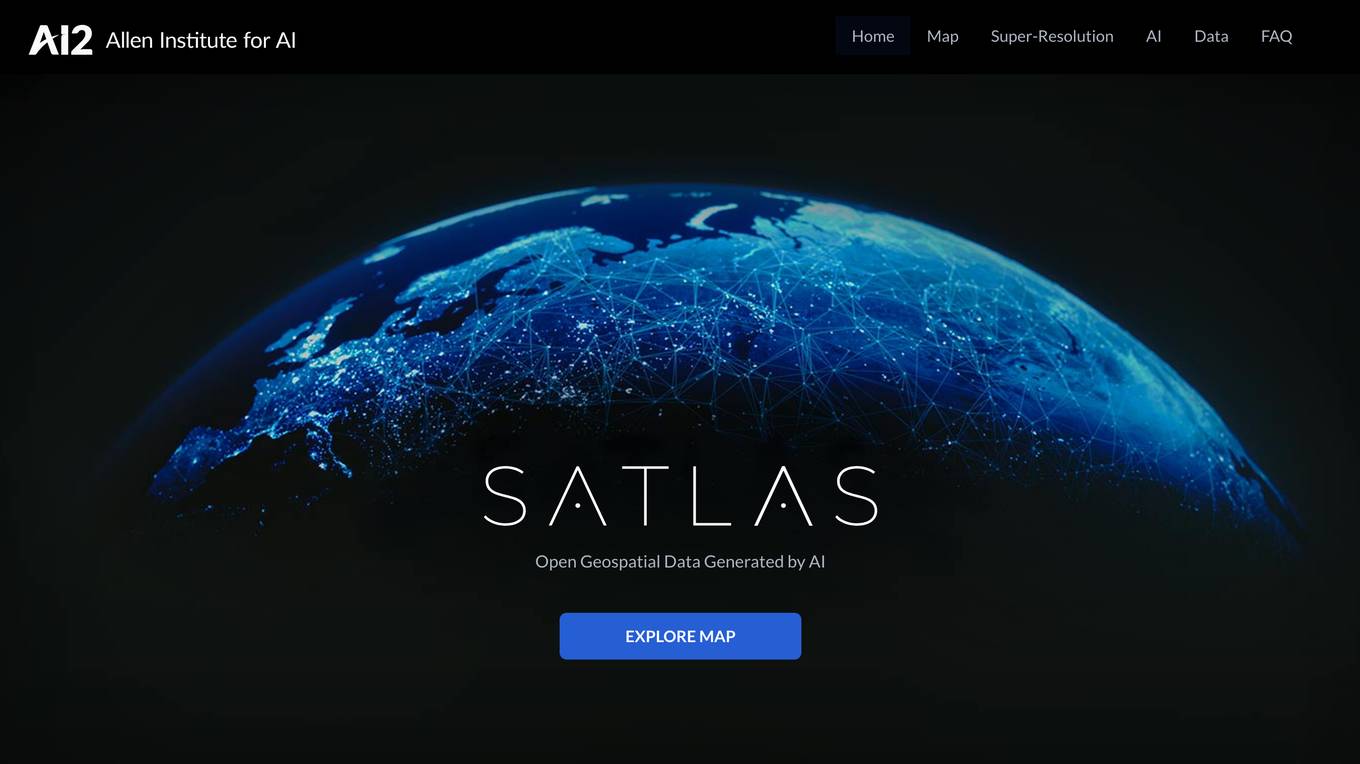
Satlas
Satlas is an AI-powered platform that provides geospatial data generated by AI models. The platform offers insights into changes in marine infrastructure, renewable energy infrastructure, and tree cover on a monthly basis. Users can explore maps showcasing developments such as wind farms, solar farms, deforestation, and more. Satlas employs advanced AI architectures and training algorithms in computer vision to enhance low-resolution satellite imagery and produce high-resolution images globally. The platform's geospatial datasets are freely available for offline analysis, along with AI models and training labels. Developed by the Allen Institute for AI, Satlas aims to advance computer vision technology for better understanding and monitoring of Earth's changes.
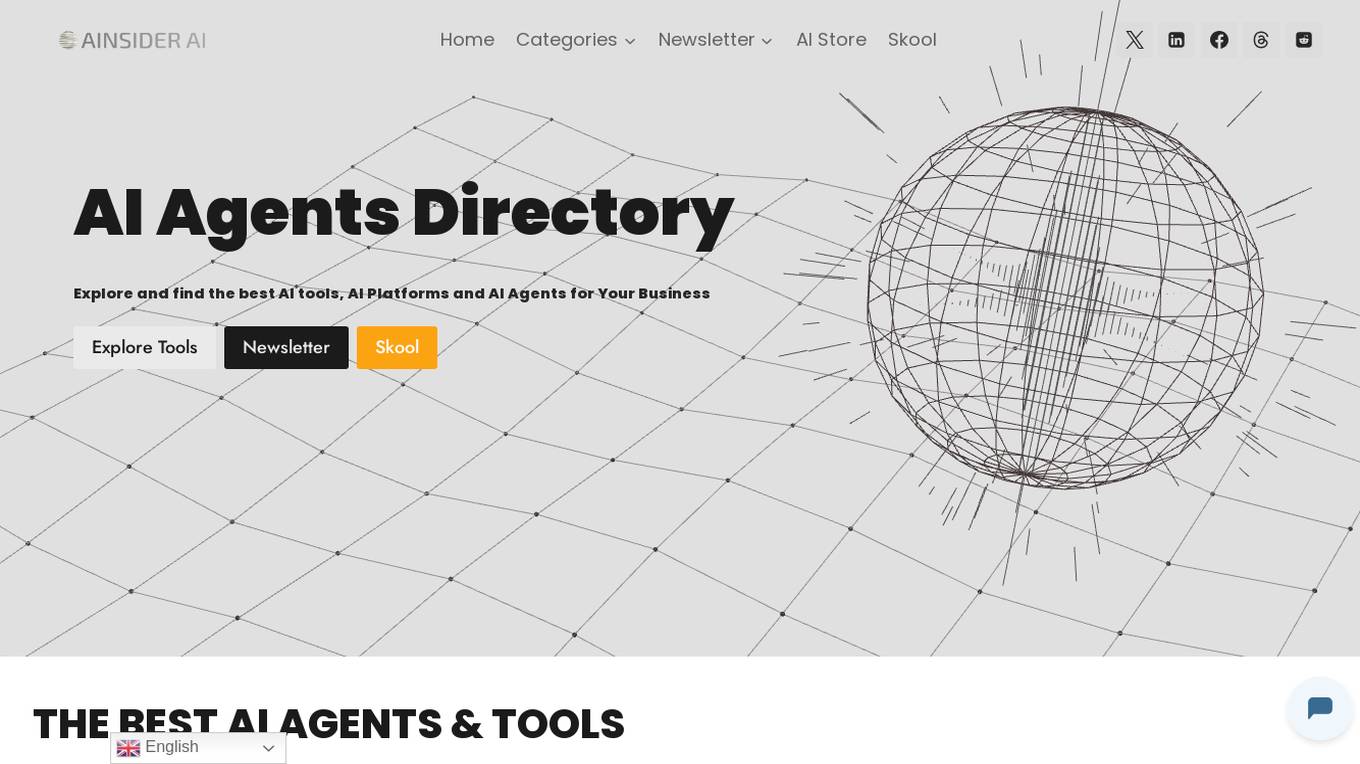
Ainsider
Ainsider is an all-in-one directory of AI agents, models, and tools. It provides a comprehensive platform for exploring and finding the best AI tools, platforms, and agents for various business needs. The website covers a wide range of categories including AI development, automation, coding assistants, writing, data design, images editing, videos editing, images generation, videos generation, marketing AI models, voice music, productivity, prompts, social media management, and 3D-VR.

Flux LoRA Model Library
Flux LoRA Model Library is an AI tool that provides a platform for finding and using Flux LoRA models suitable for various projects. Users can browse a catalog of popular Flux LoRA models and learn about FLUX models and LoRA (Low-Rank Adaptation) technology. The platform offers resources for fine-tuning models and ensuring responsible use of generated images.
2 - Open Source AI Tools
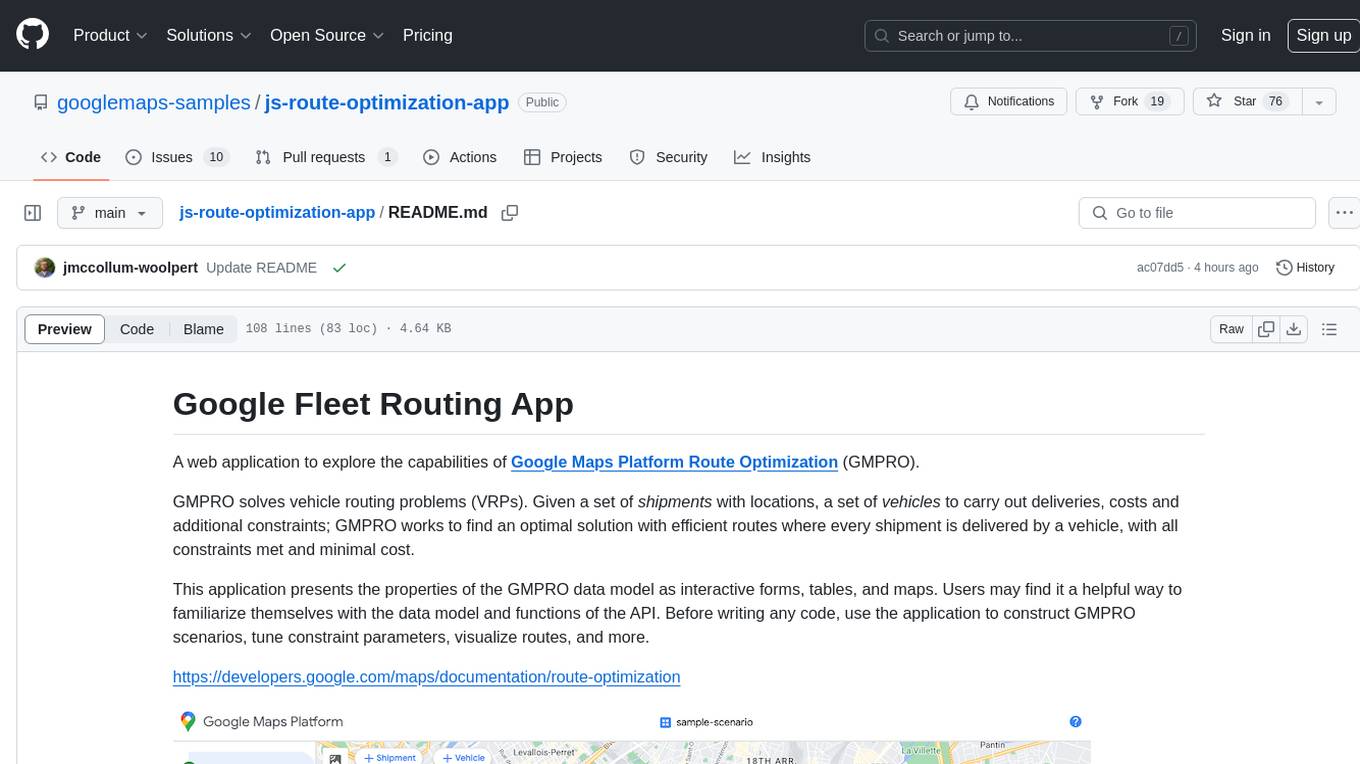
js-route-optimization-app
A web application to explore the capabilities of Google Maps Platform Route Optimization (GMPRO) for solving vehicle routing problems. Users can interact with the GMPRO data model through forms, tables, and maps to construct scenarios, tune constraints, and visualize routes. The application is intended for exploration purposes only and should not be deployed in production. Users are responsible for billing related to cloud resources and API usage. It is important to understand the pricing models for Maps Platform and Route Optimization before using the application.
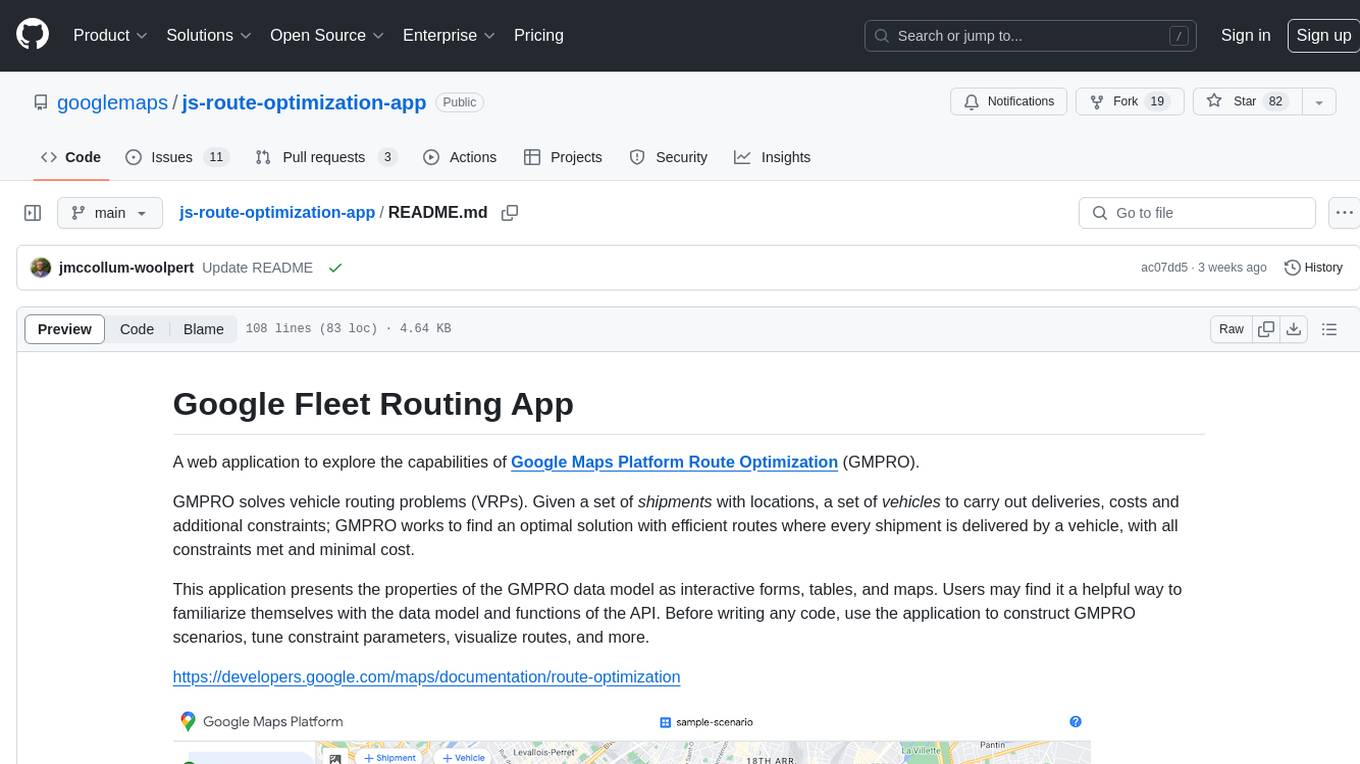
js-route-optimization-app
A web application to explore the capabilities of Google Maps Platform Route Optimization (GMPRO). It helps users understand the data model and functions of the API by presenting interactive forms, tables, and maps. The tool is intended for exploratory use only and should not be deployed in production. Users can construct scenarios, tune constraint parameters, and visualize routes before implementing their own solutions for integrating Route Optimization into their business processes. The application incurs charges related to cloud resources and API usage, and users should be cautious about generating high usage volumes, especially for large scenarios.
20 - OpenAI Gpts
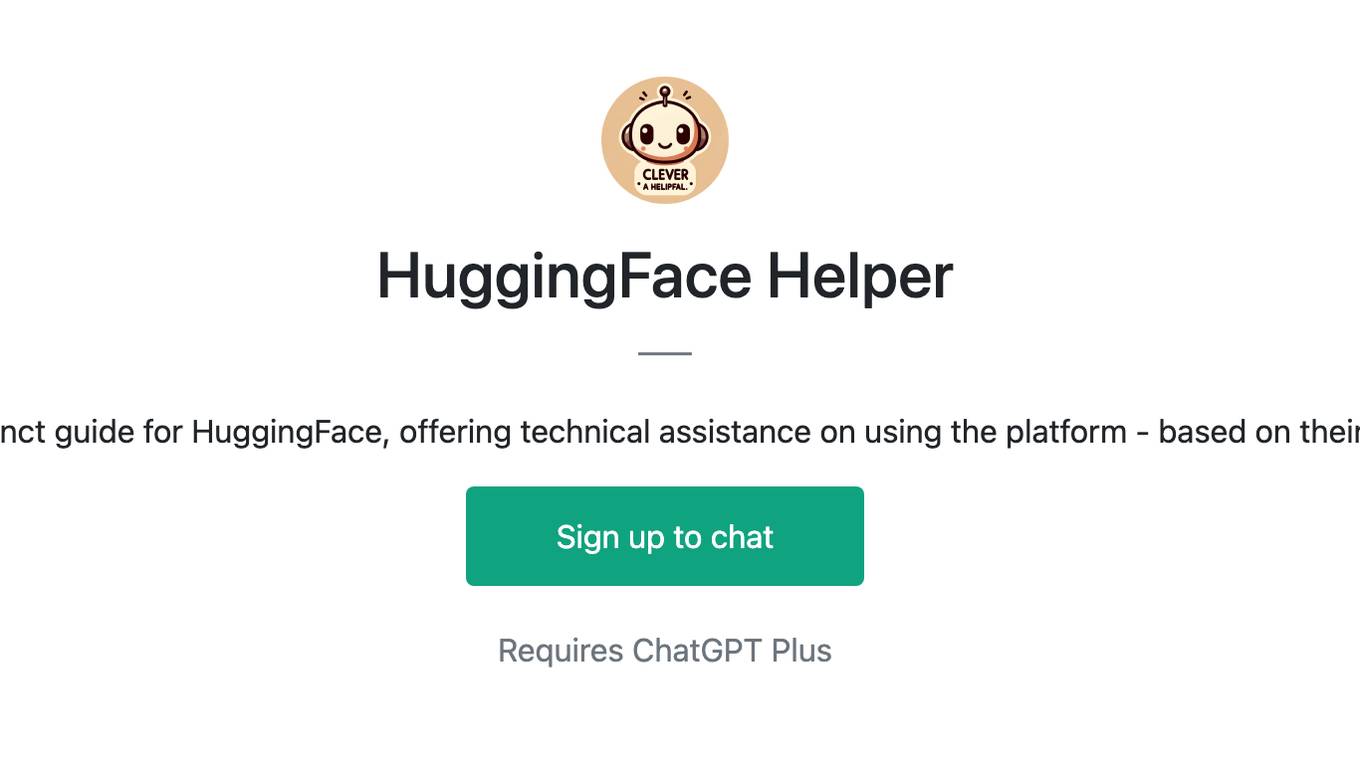
HuggingFace Helper
A witty yet succinct guide for HuggingFace, offering technical assistance on using the platform - based on their Learning Hub
![VitalsGPT [V0.0.2.2] Screenshot](/screenshots_gpts/g-cL1rJdm11.jpg)
VitalsGPT [V0.0.2.2]
Simple CustomGPT built on Vitals Inquiry Case in Malta, aimed to help journalists and citizens navigate the inquiry's large dataset in a neutral, informative fashion. Always cross-reference replies to actual data. Do not rely solely on this LLM for verification of facts.
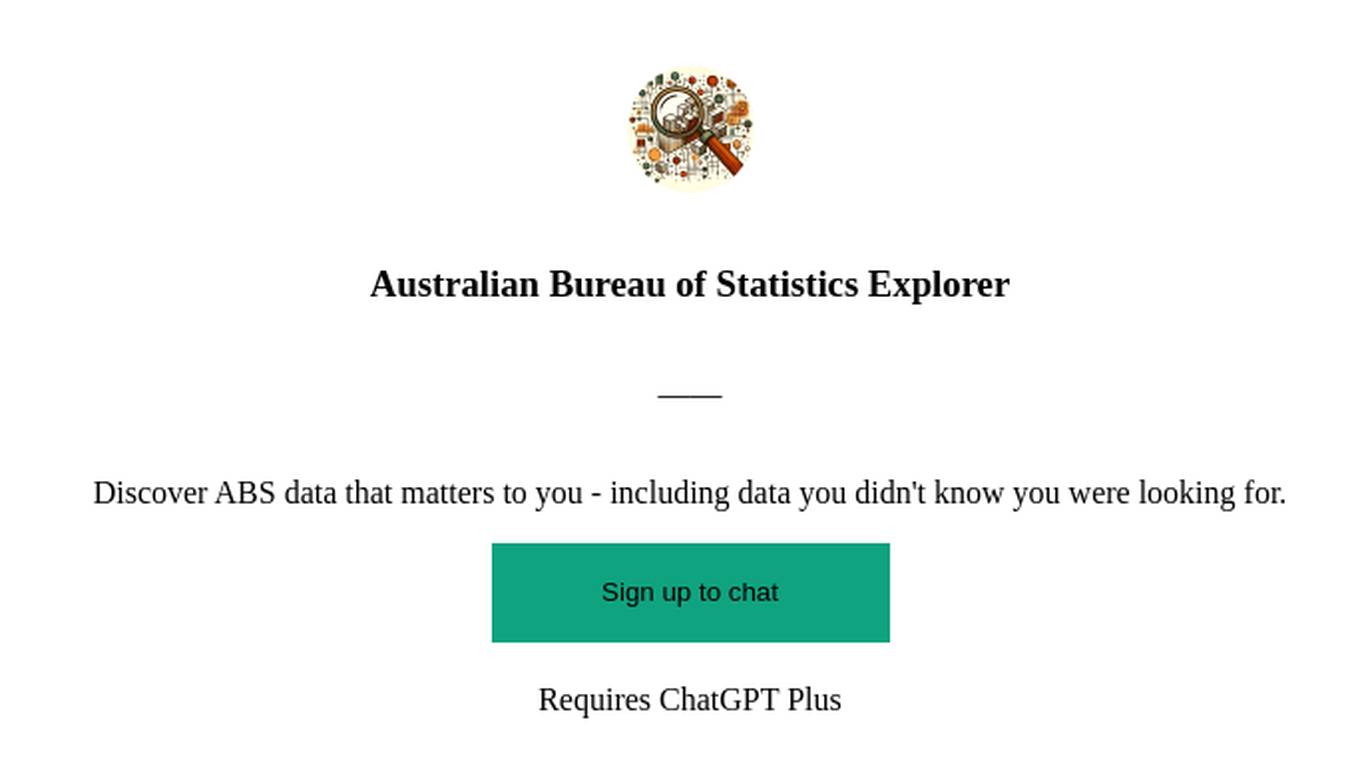
Australian Bureau of Statistics Explorer
Discover ABS data that matters to you - including data you didn't know you were looking for.
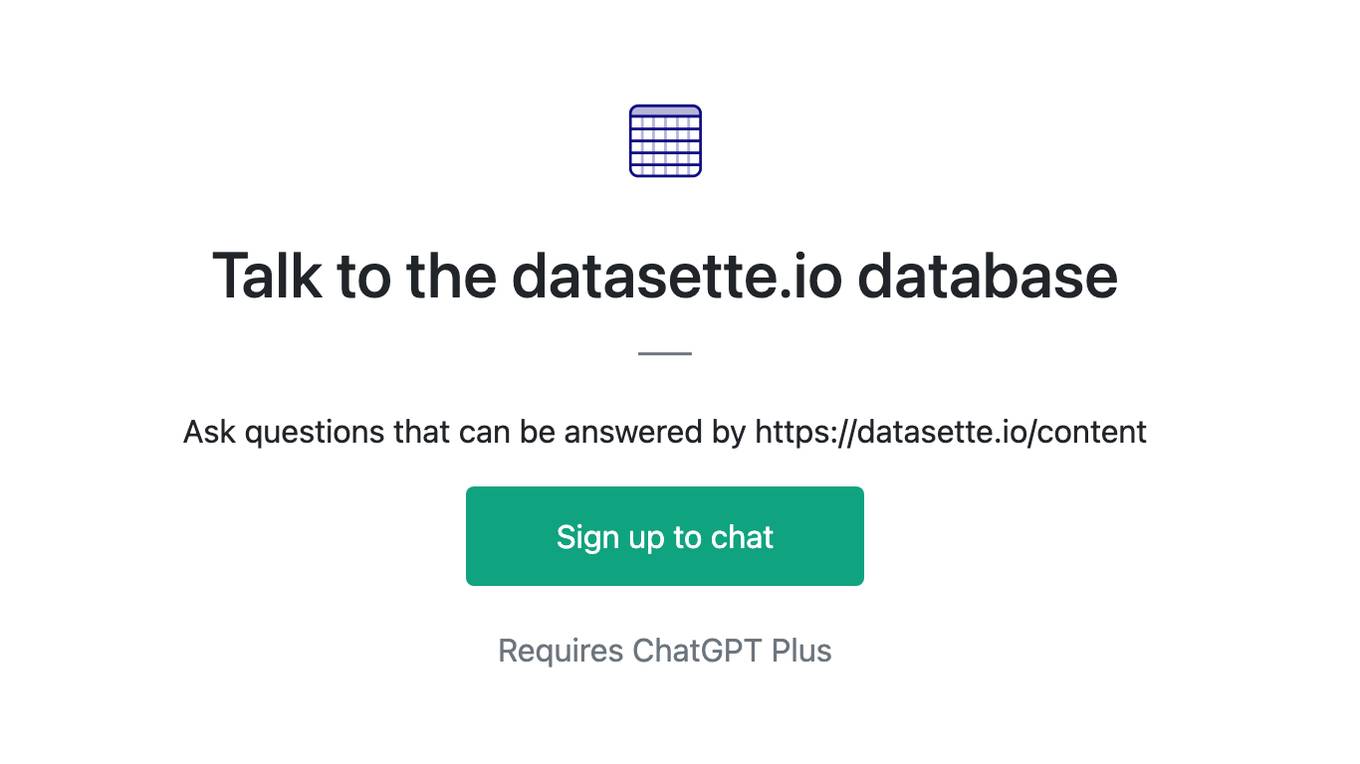
Talk to the datasette.io database
Ask questions that can be answered by https://datasette.io/content
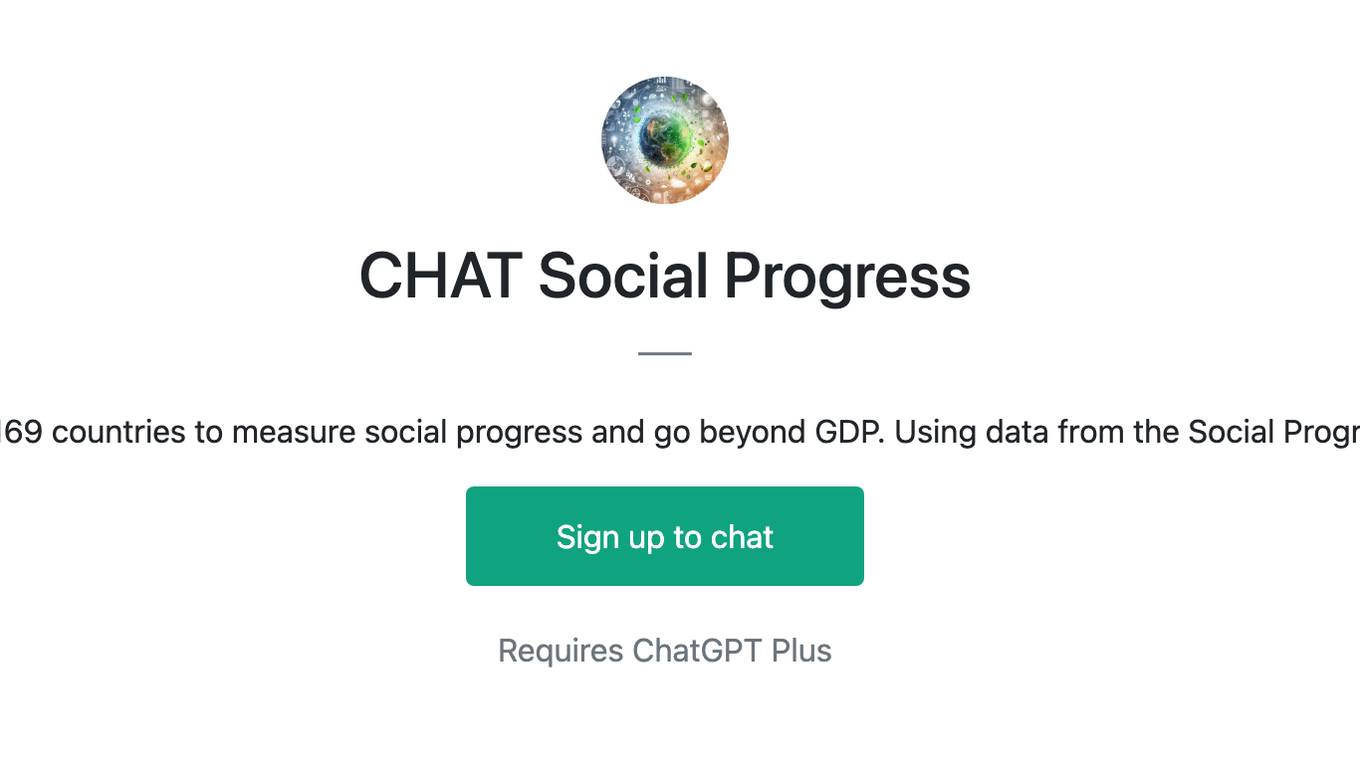
CHAT Social Progress
Explore social and environmental data for 169 countries to measure social progress and go beyond GDP. Using data from the Social Progress Imperative and powered by Open AI.
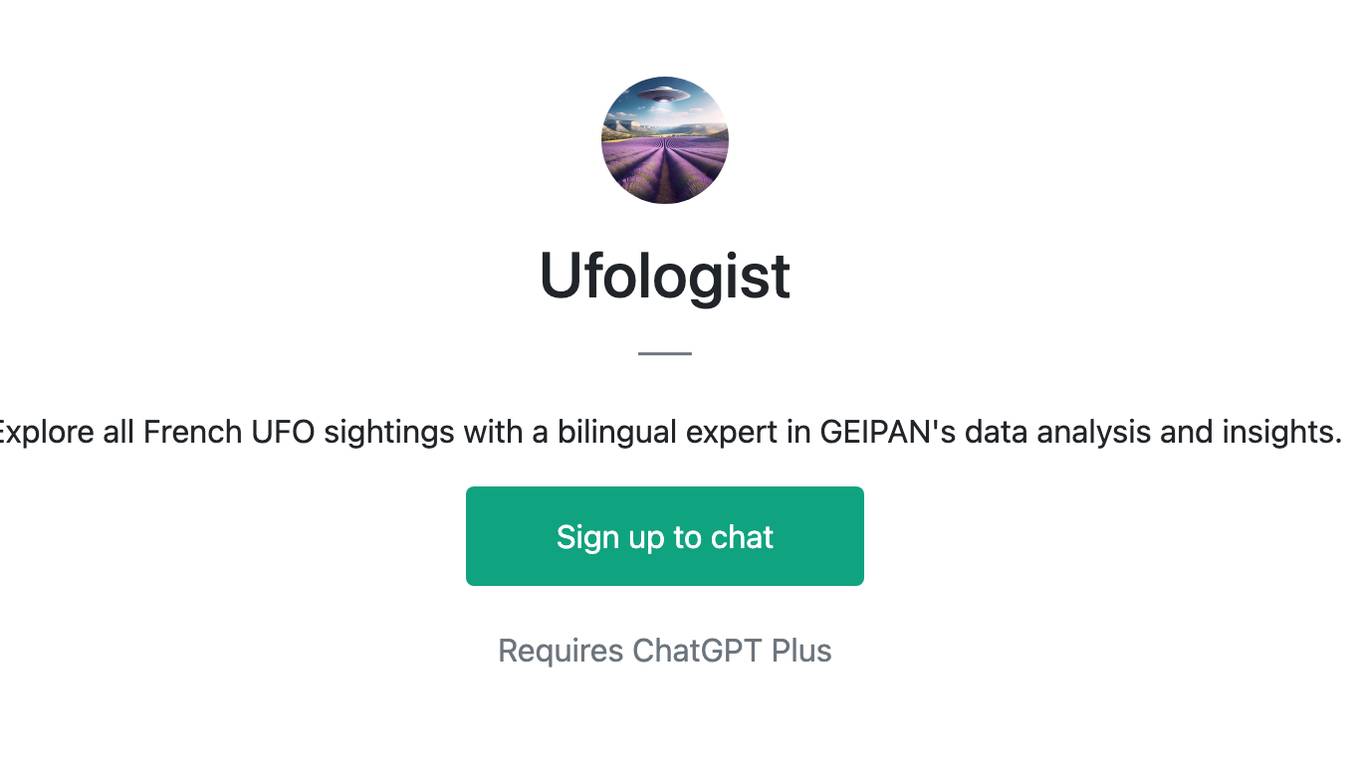
Ufologist
Explore all French UFO sightings with a bilingual expert in GEIPAN's data analysis and insights.
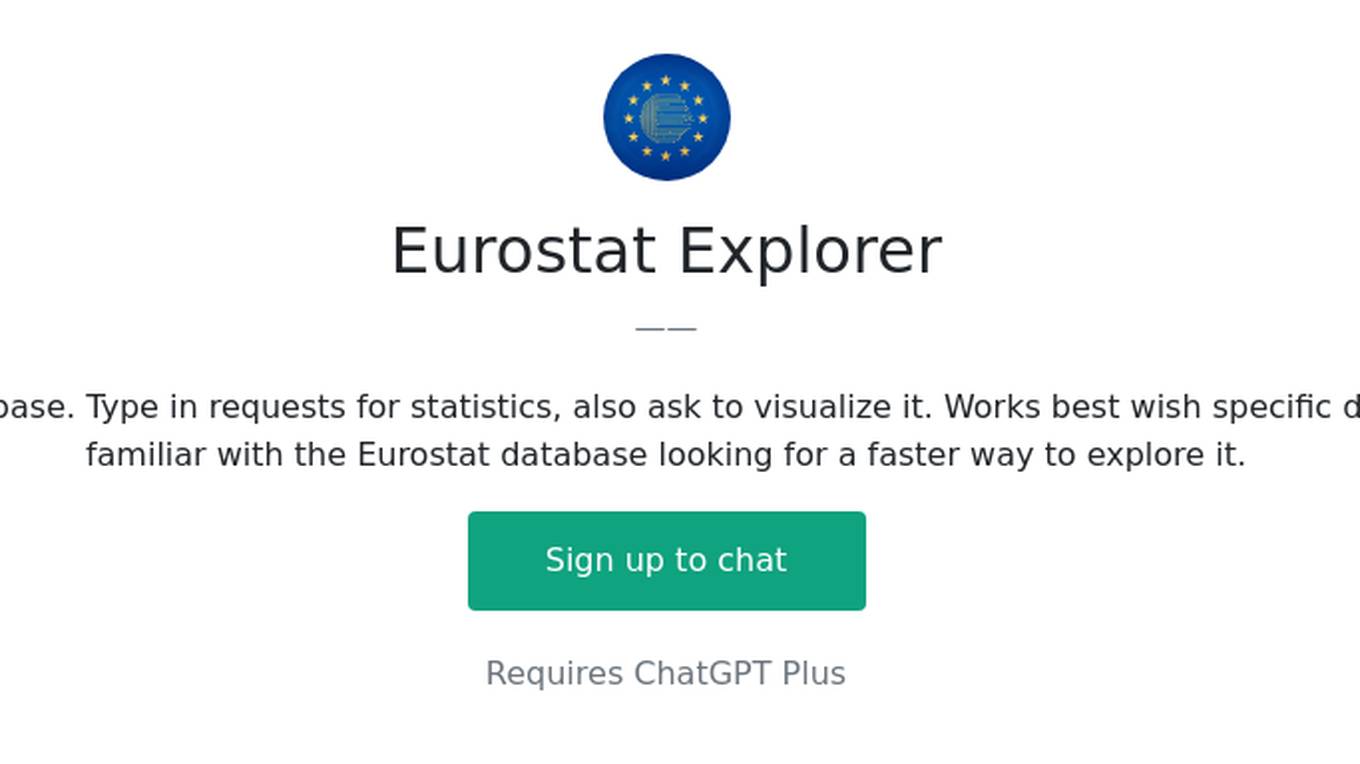
Eurostat Explorer
Explore & interpret the Eurostat database. Type in requests for statistics, also ask to visualize it. Works best wish specific datasets. It's meant for professionals familiar with the Eurostat database looking for a faster way to explore it.
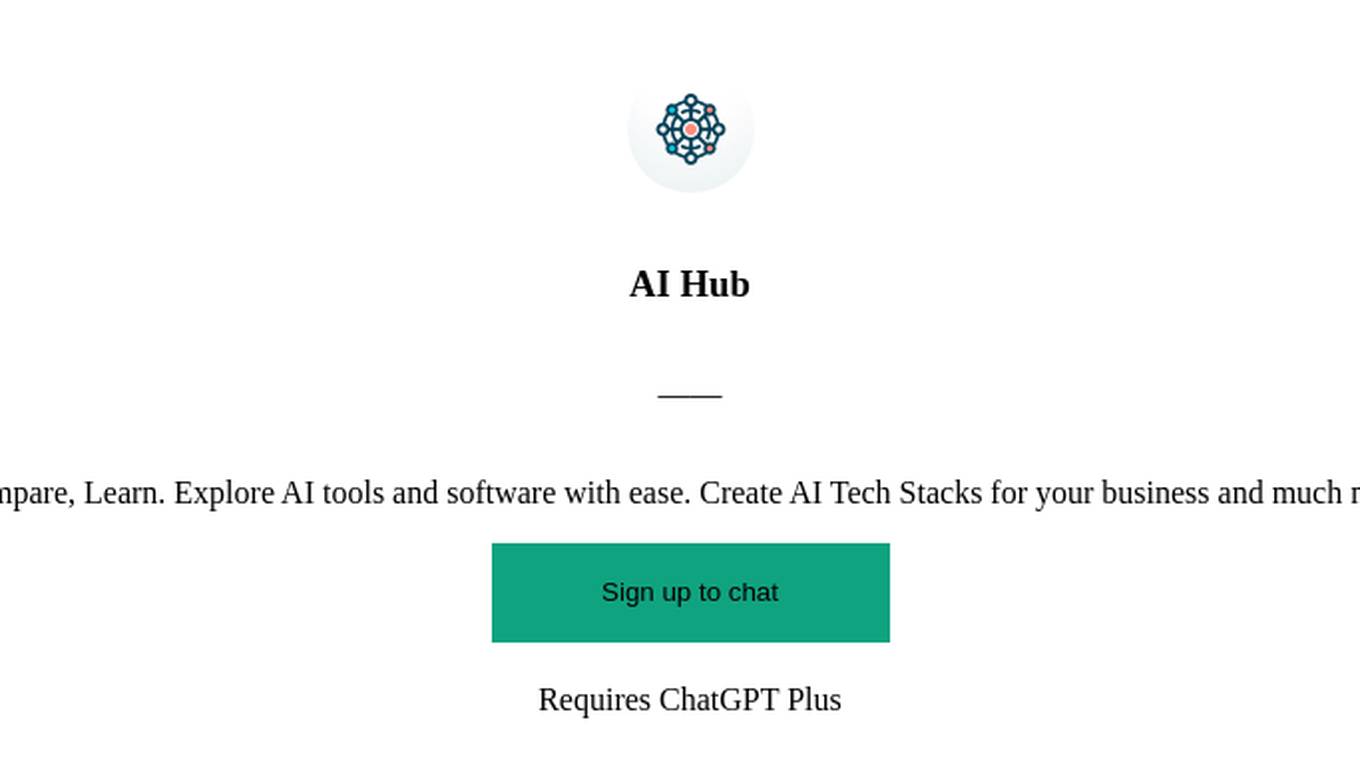
AI Hub
Your Gateway to AI Discovery – Ask, Compare, Learn. Explore AI tools and software with ease. Create AI Tech Stacks for your business and much more – Just ask, and AI Hub will do the rest!
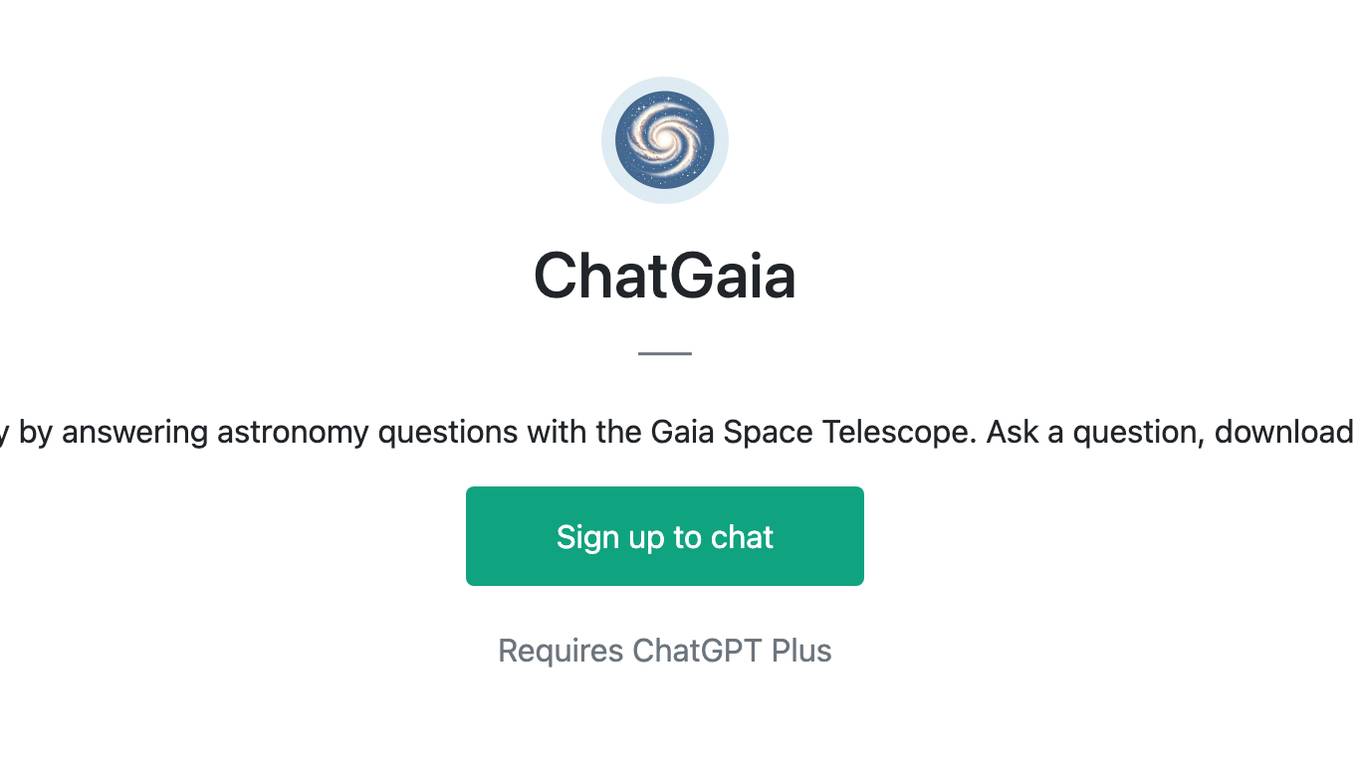
ChatGaia
I help you to explore the galaxy by answering astronomy questions with the Gaia Space Telescope. Ask a question, download .csv, upload .csv for plotting
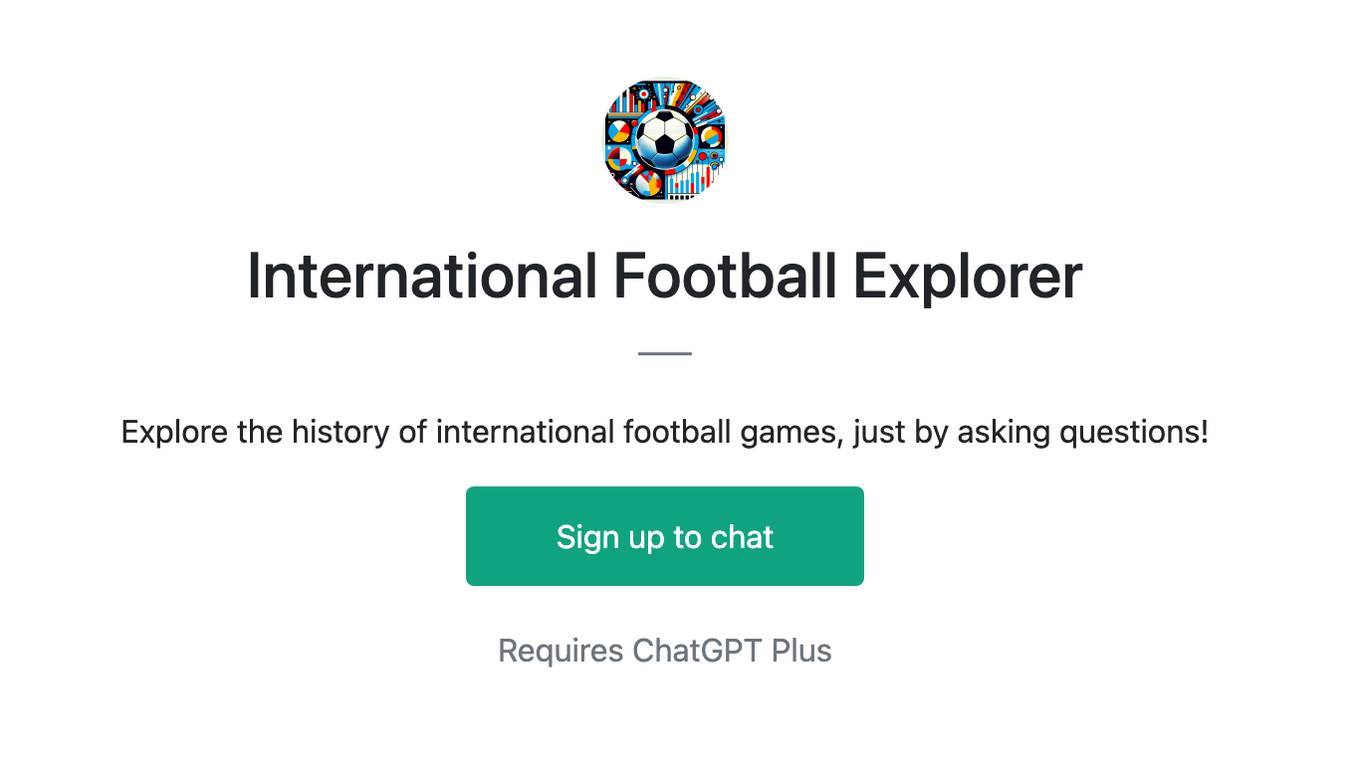
International Football Explorer
Explore the history of international football games, just by asking questions!
